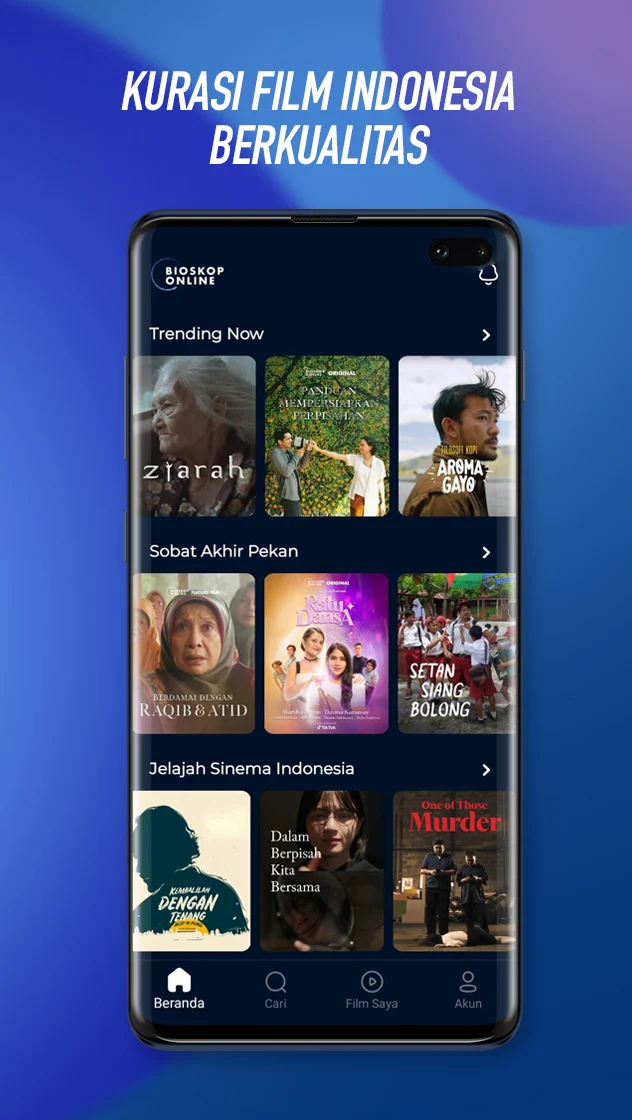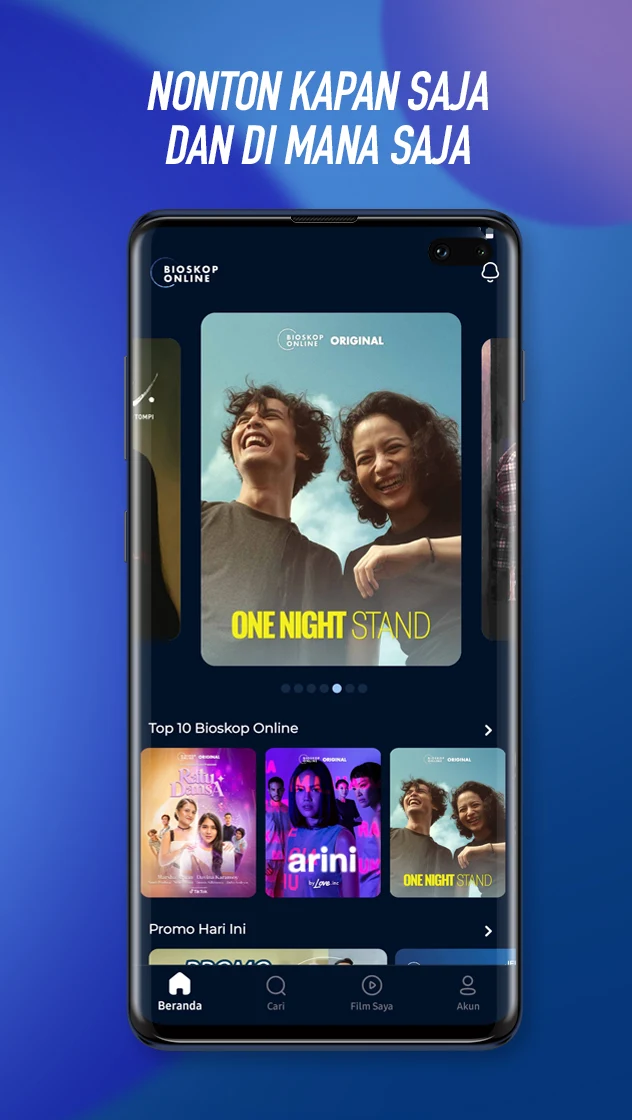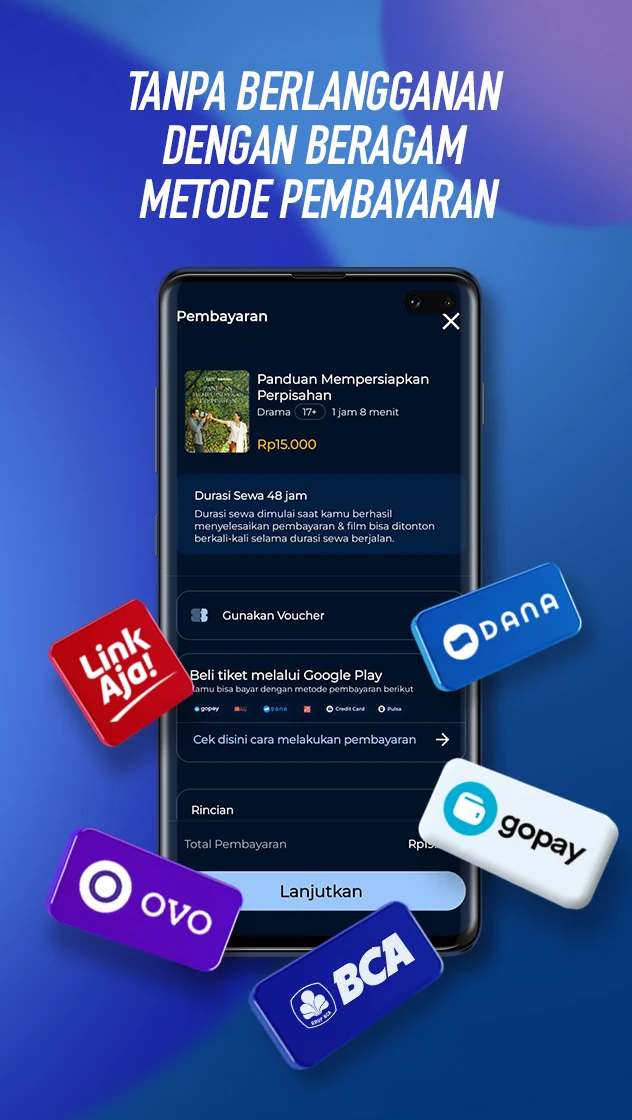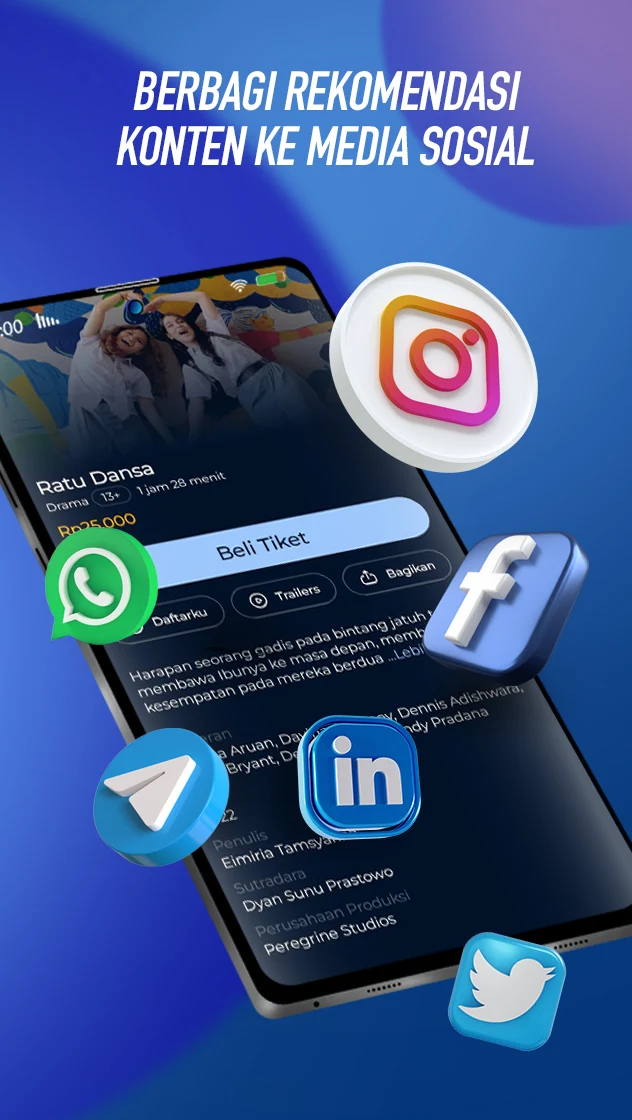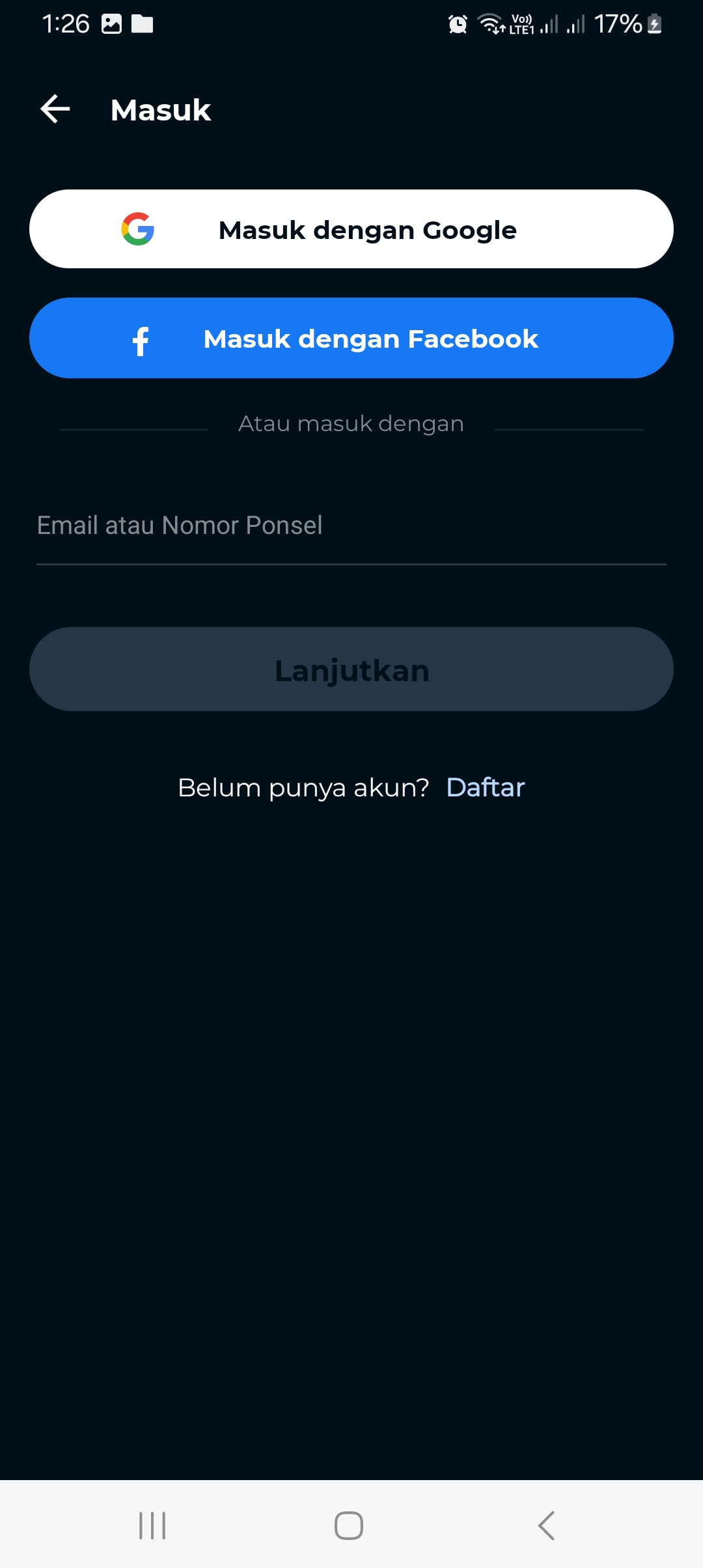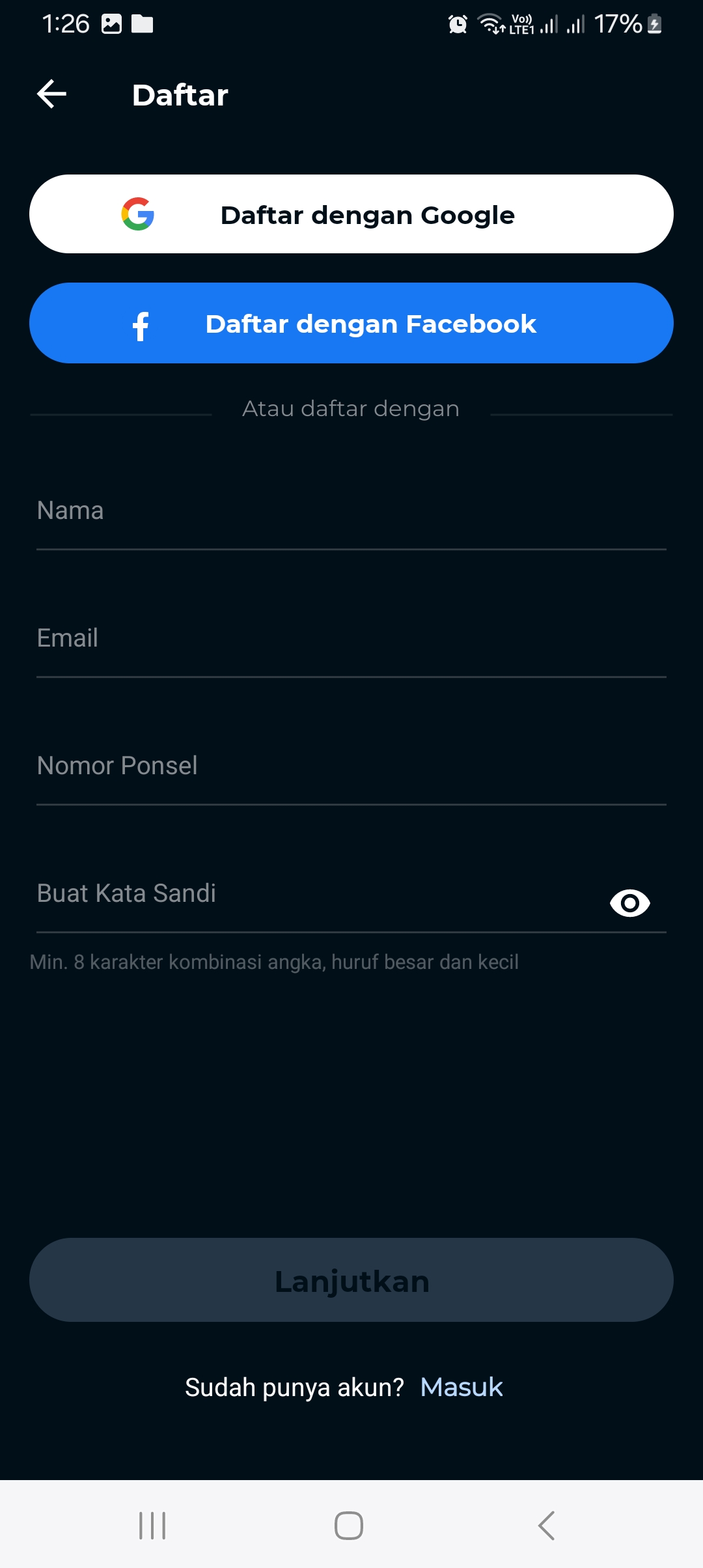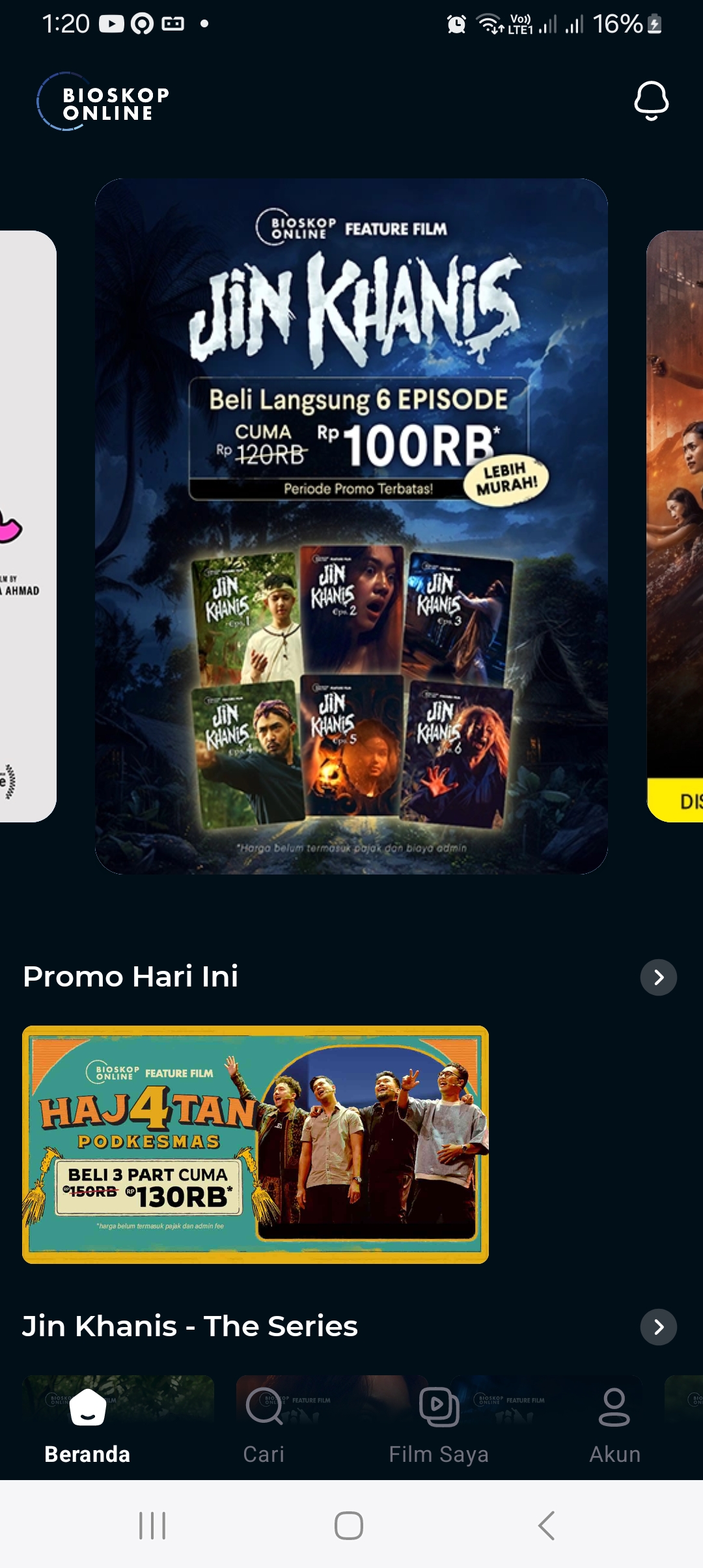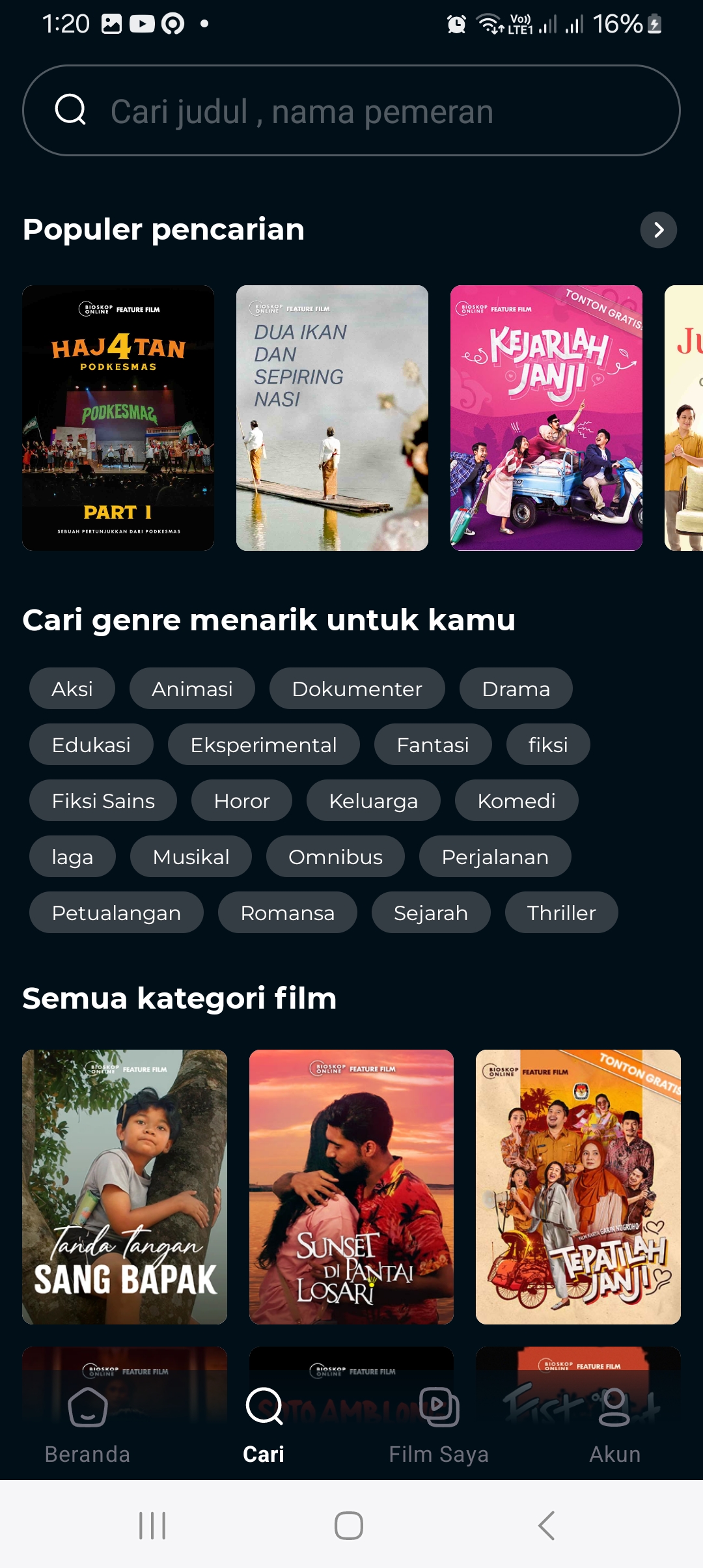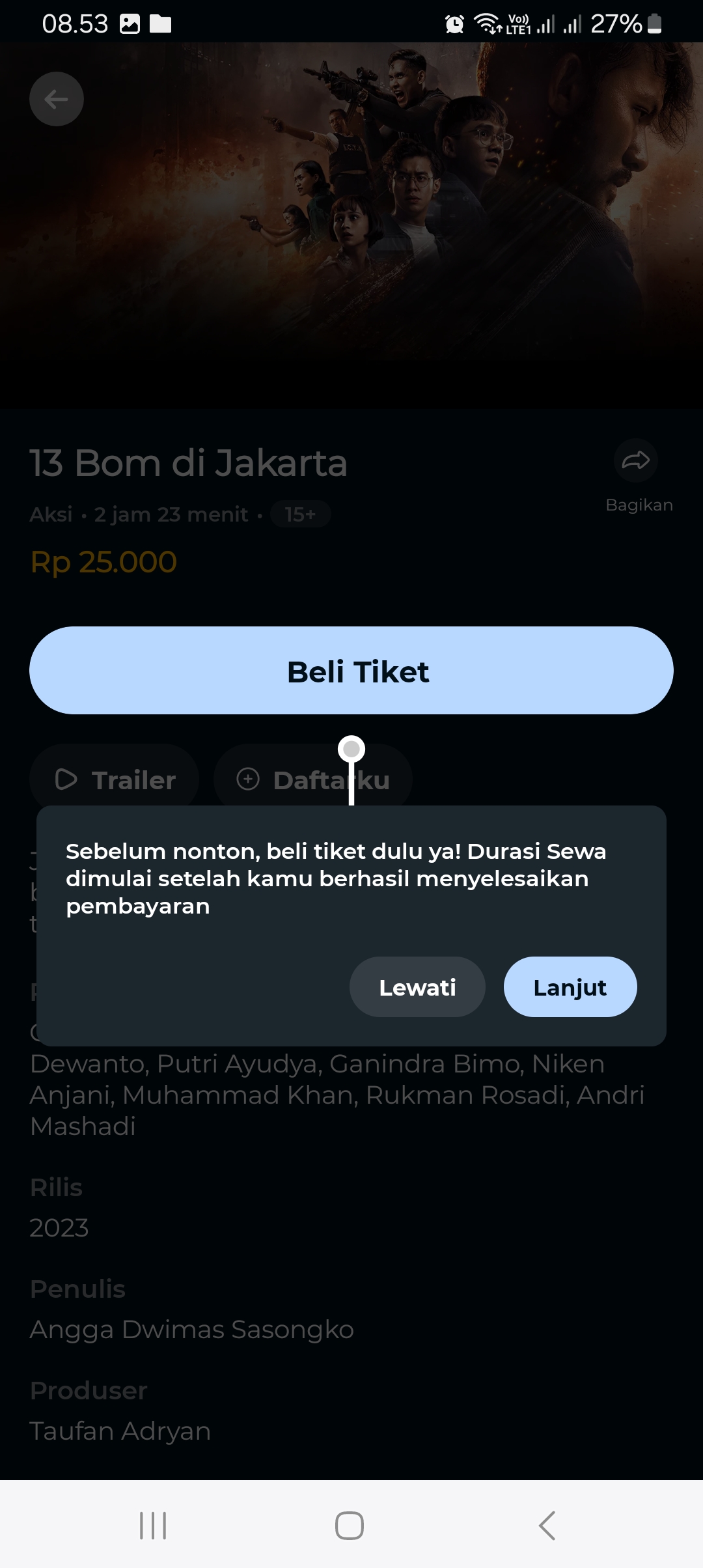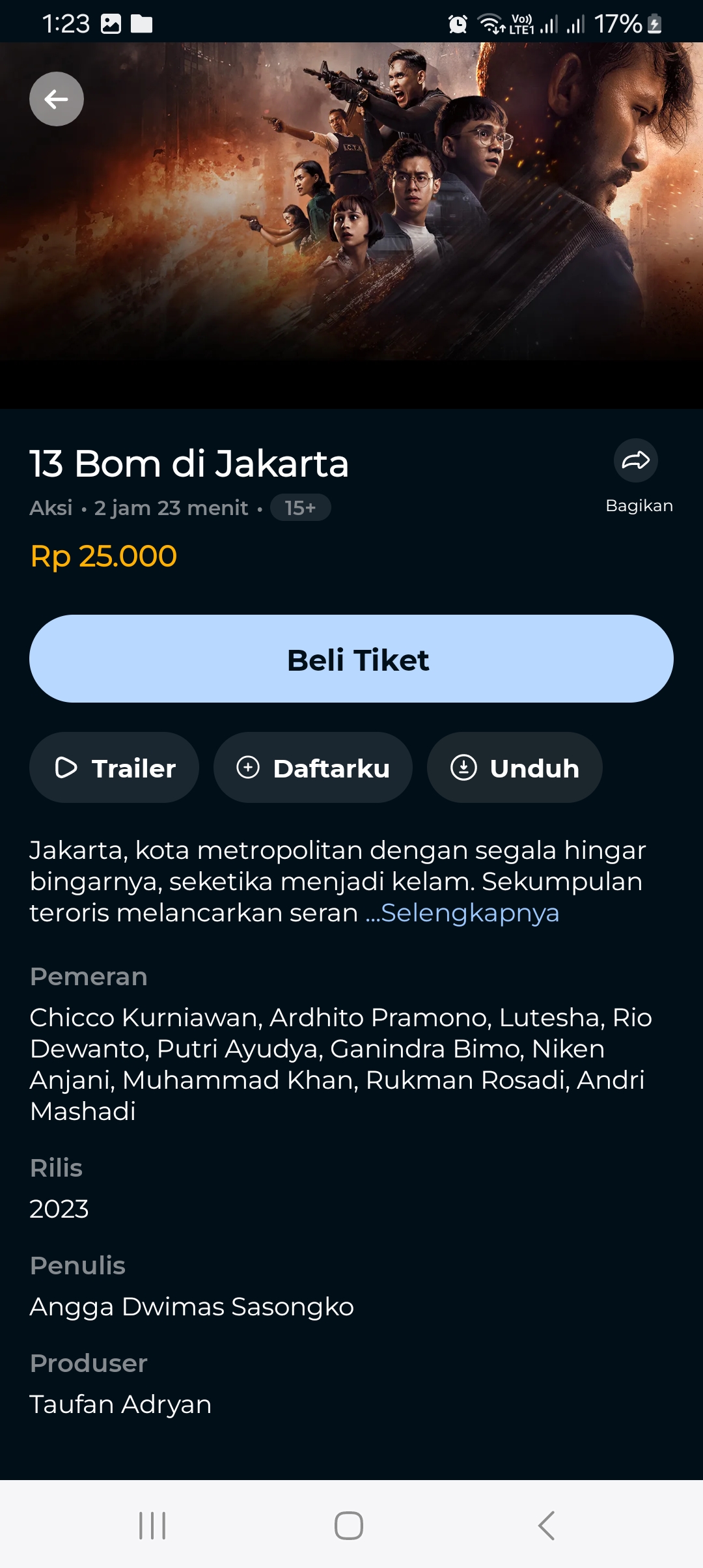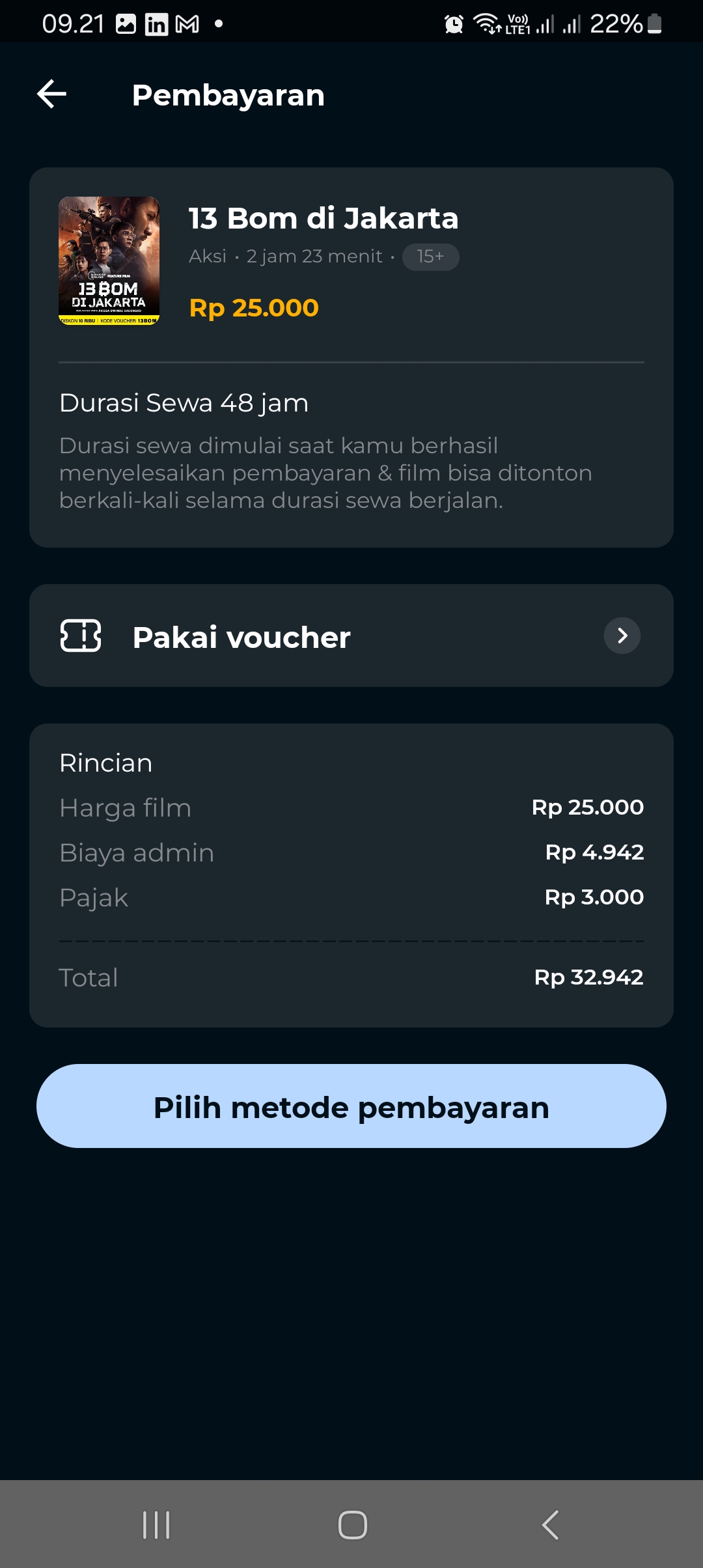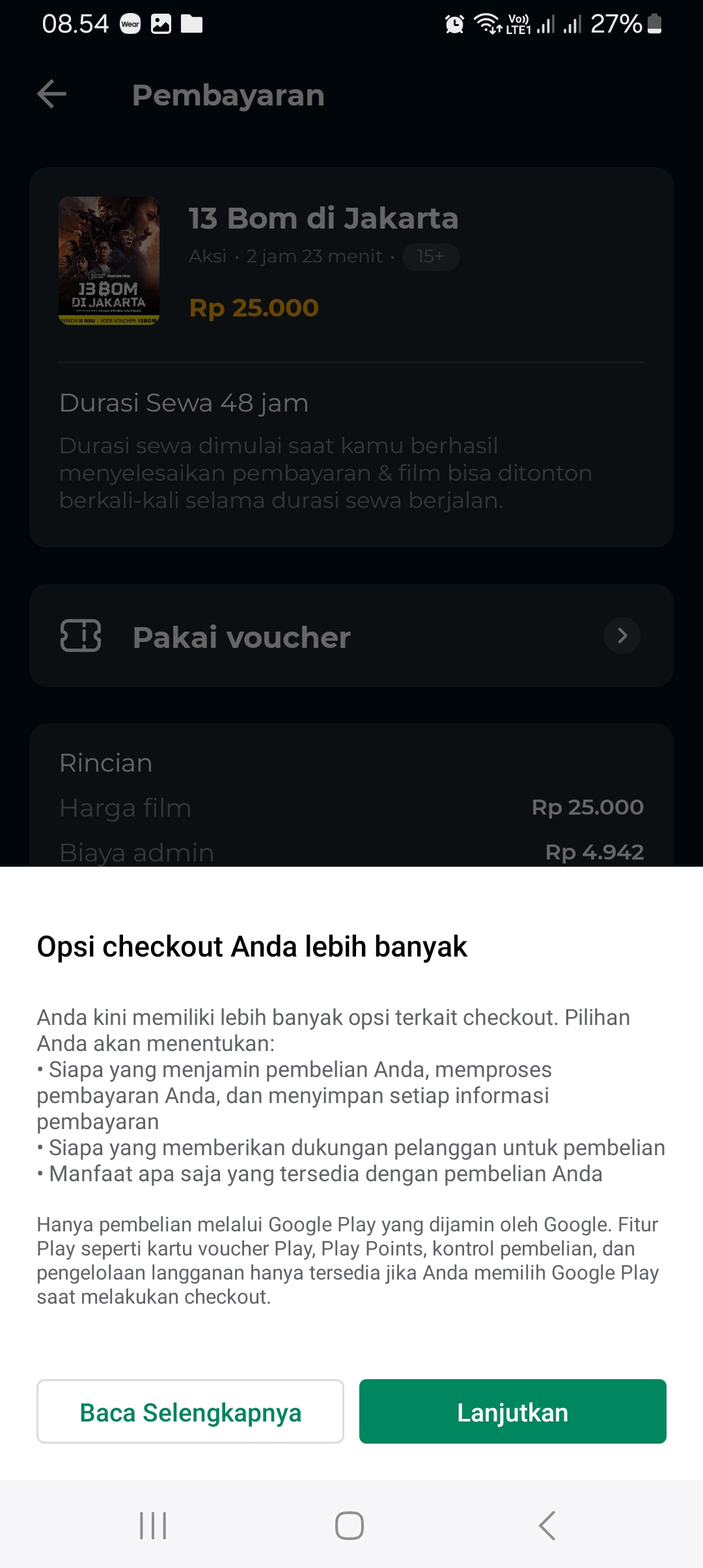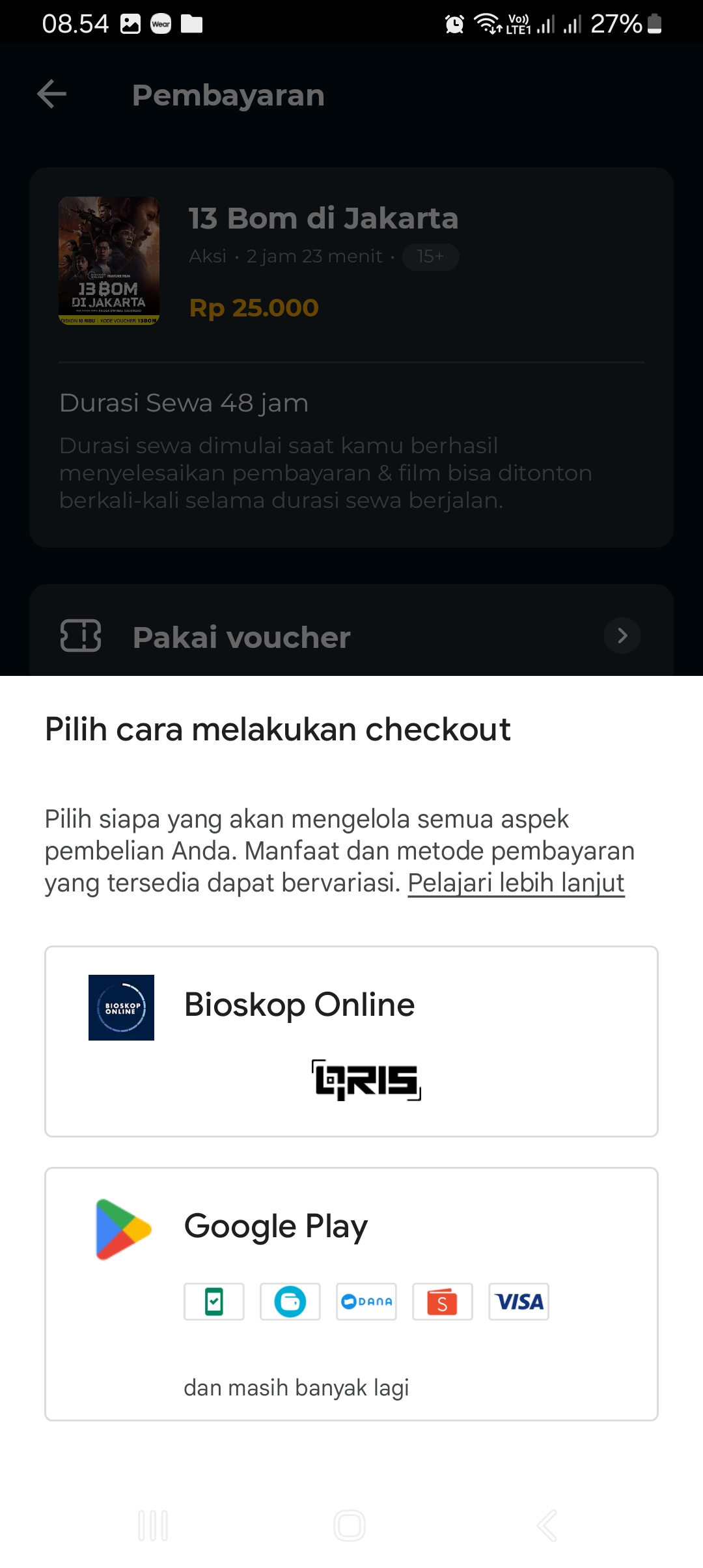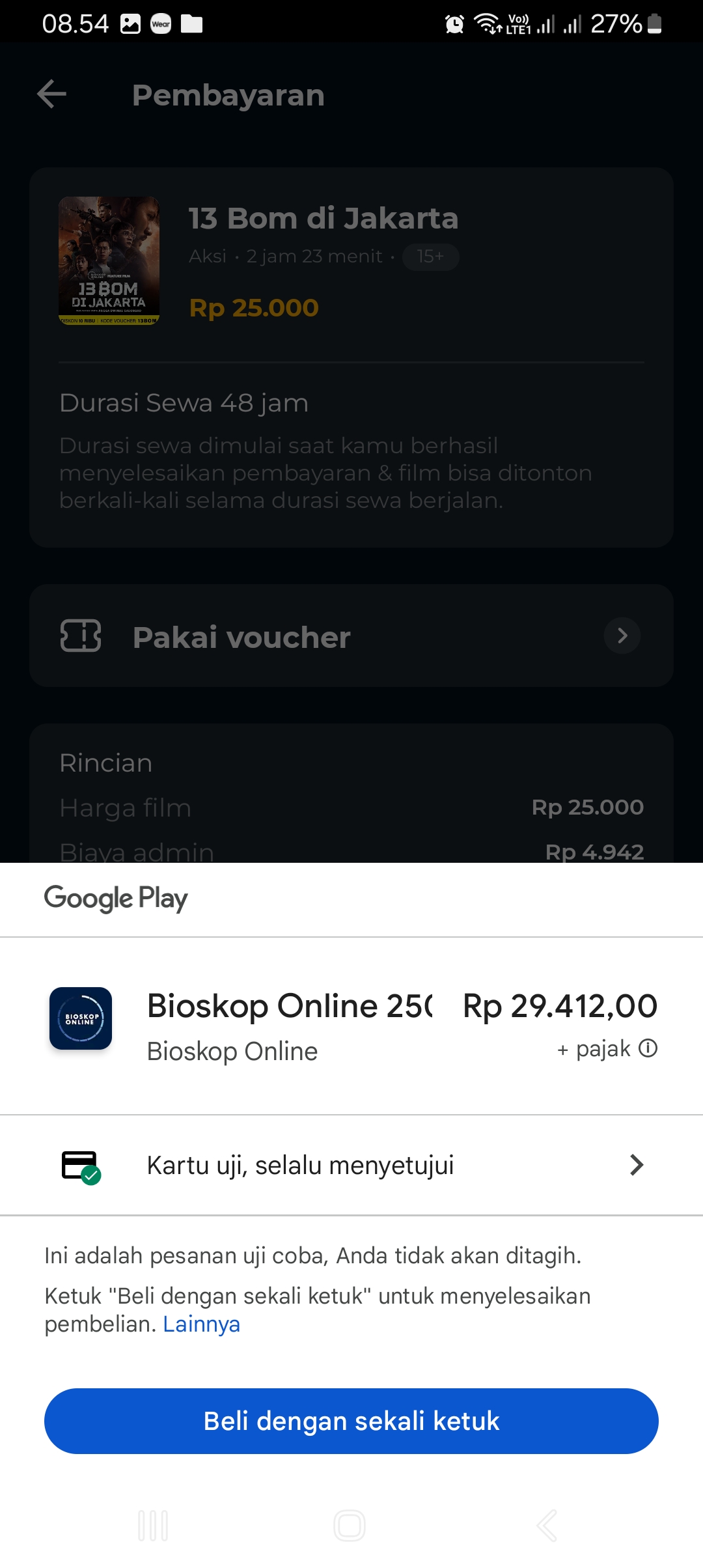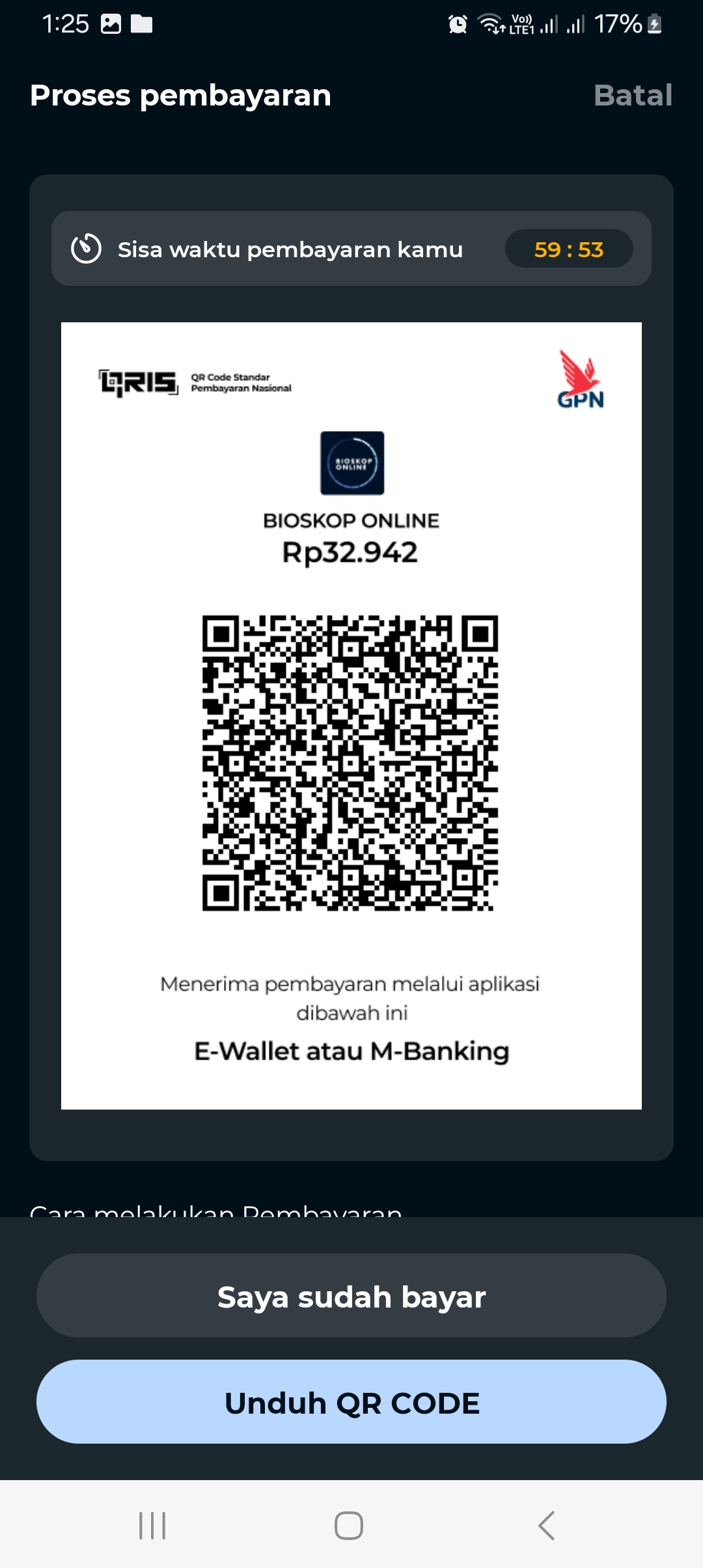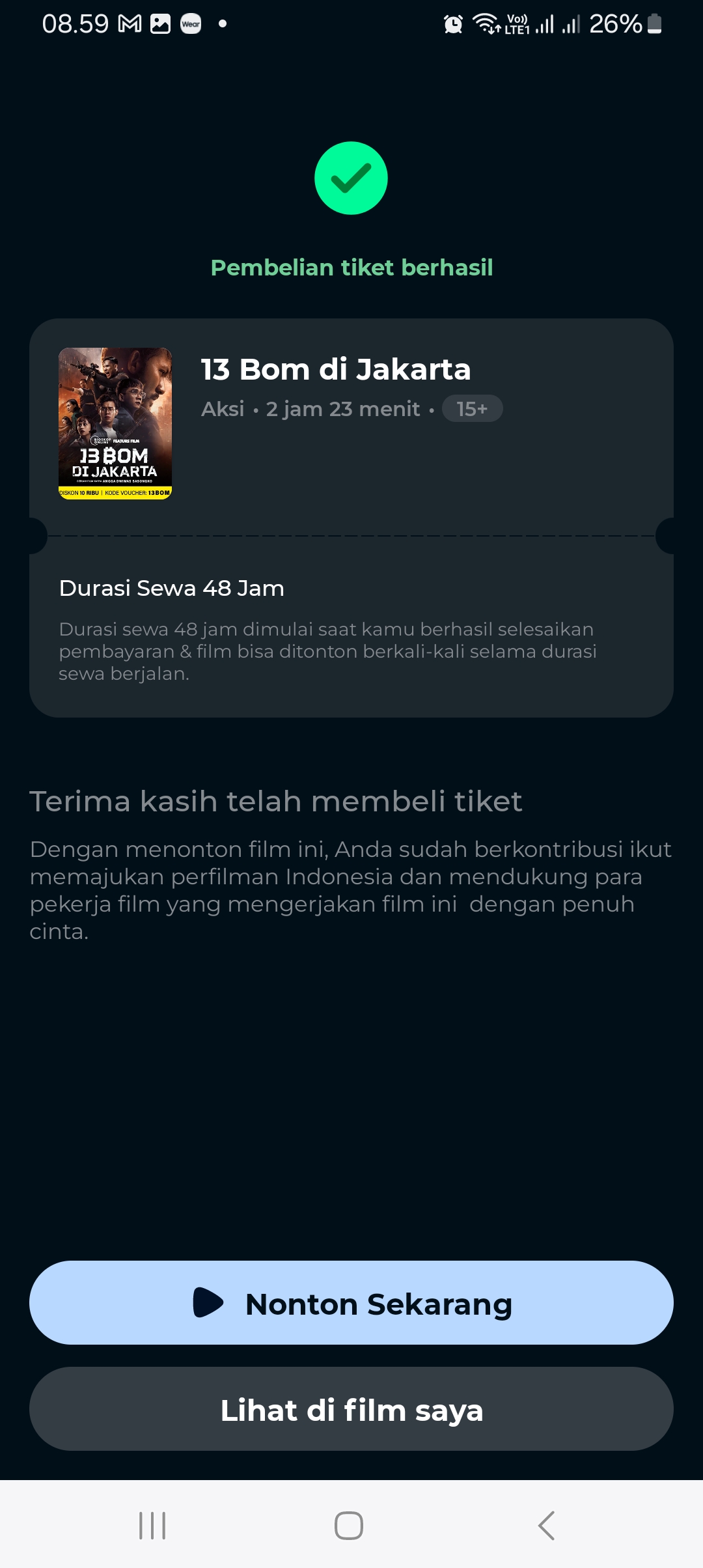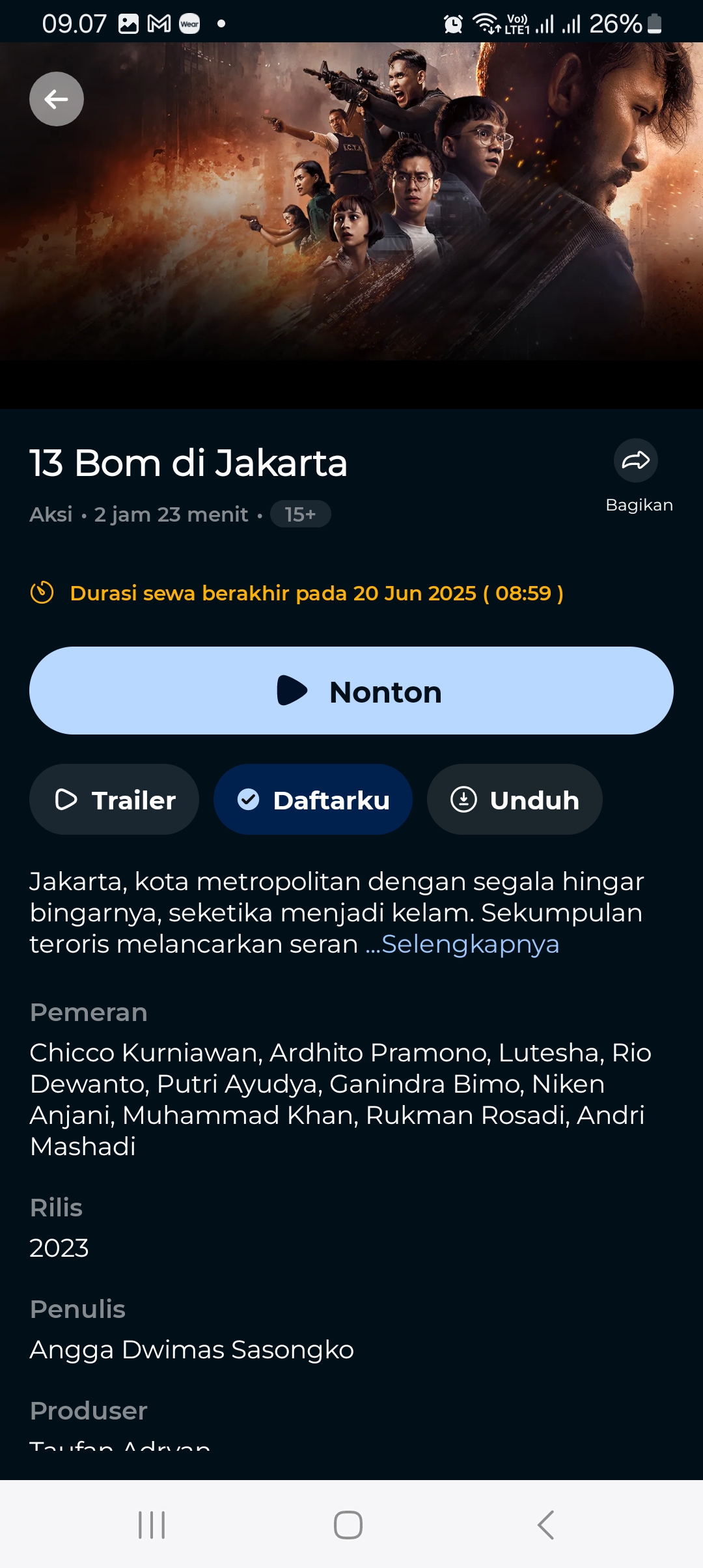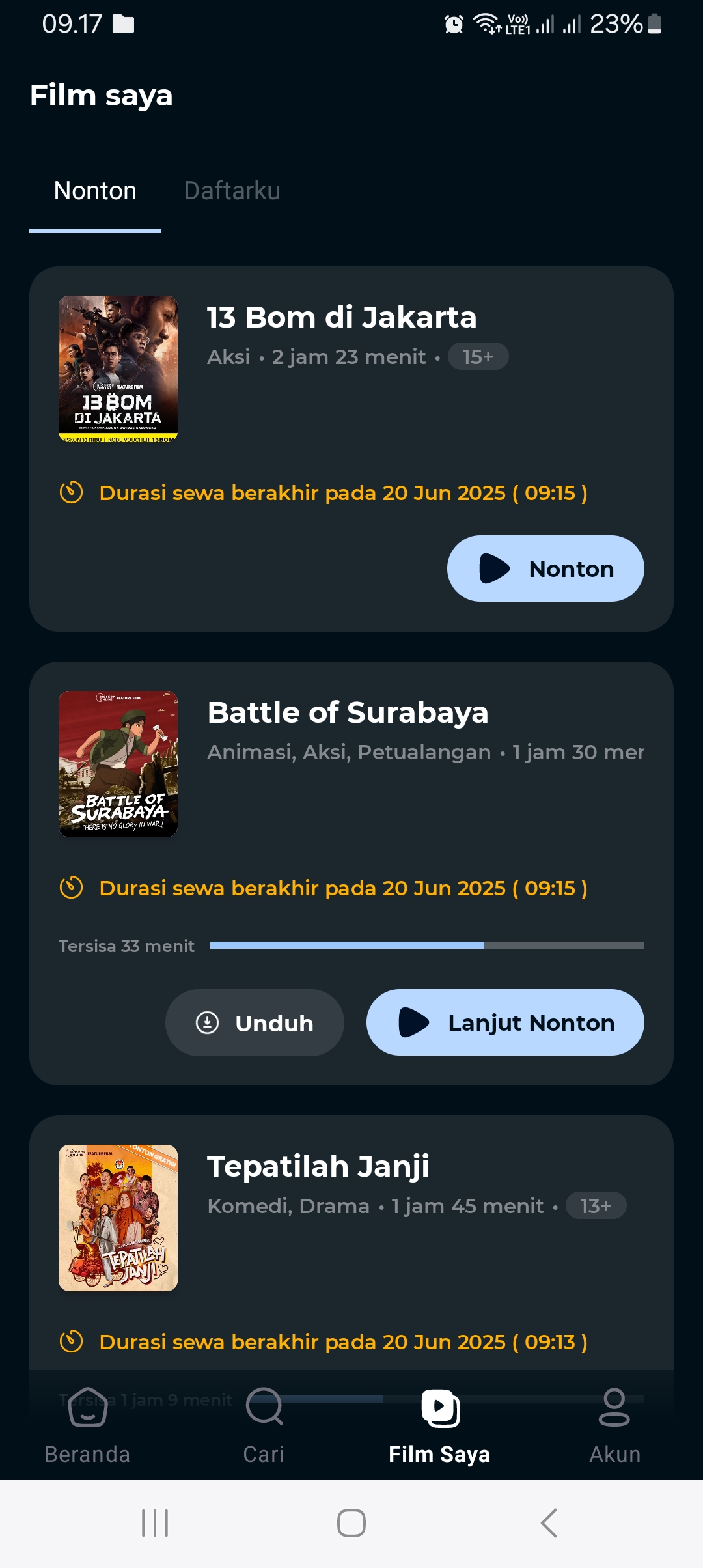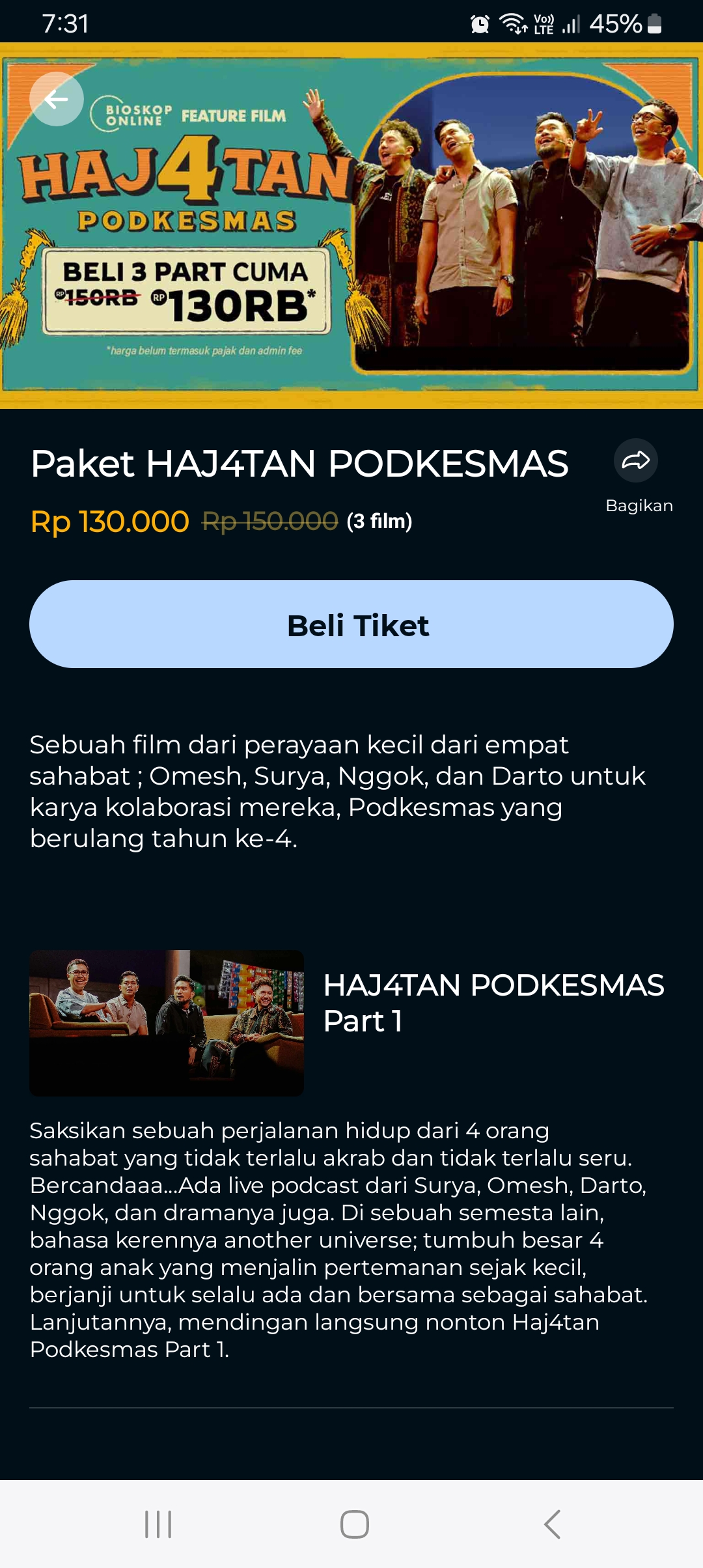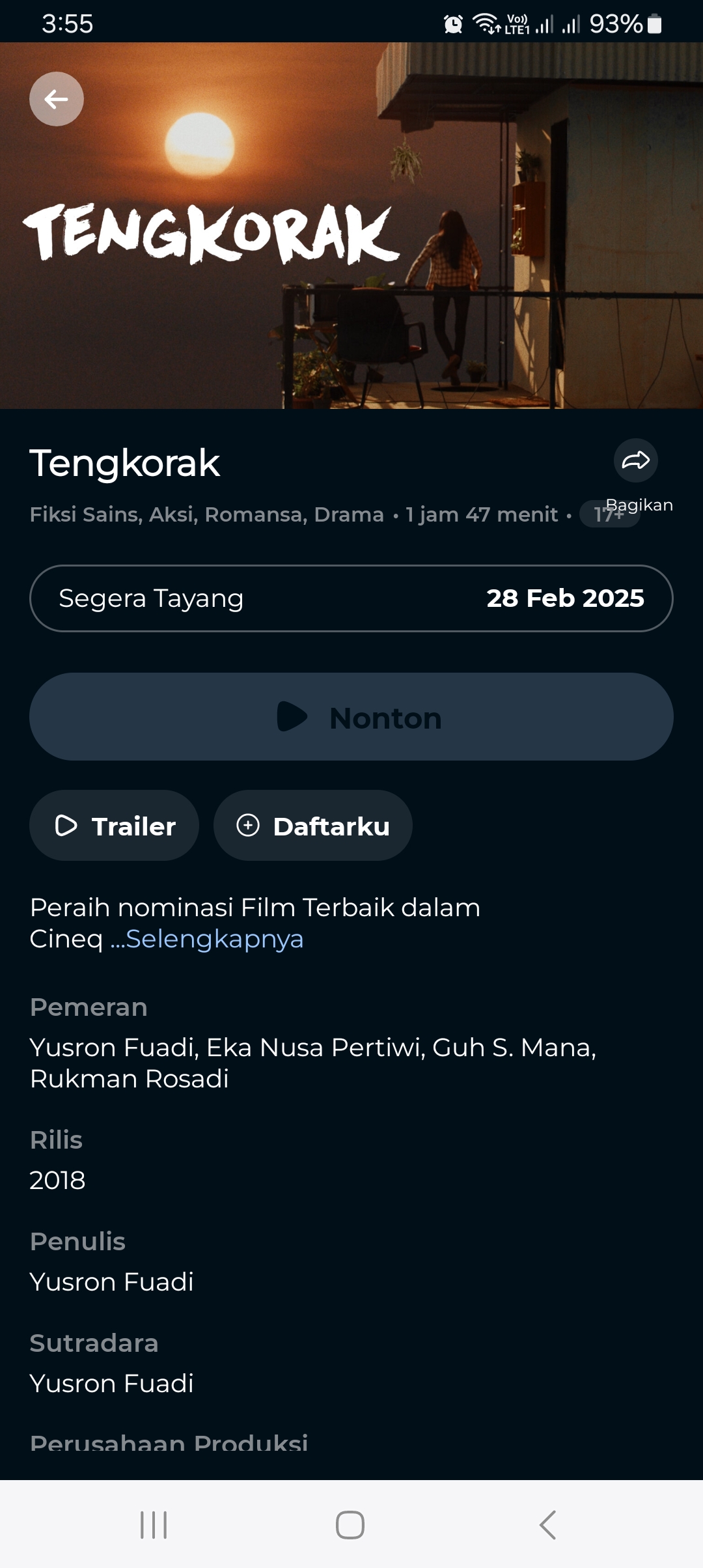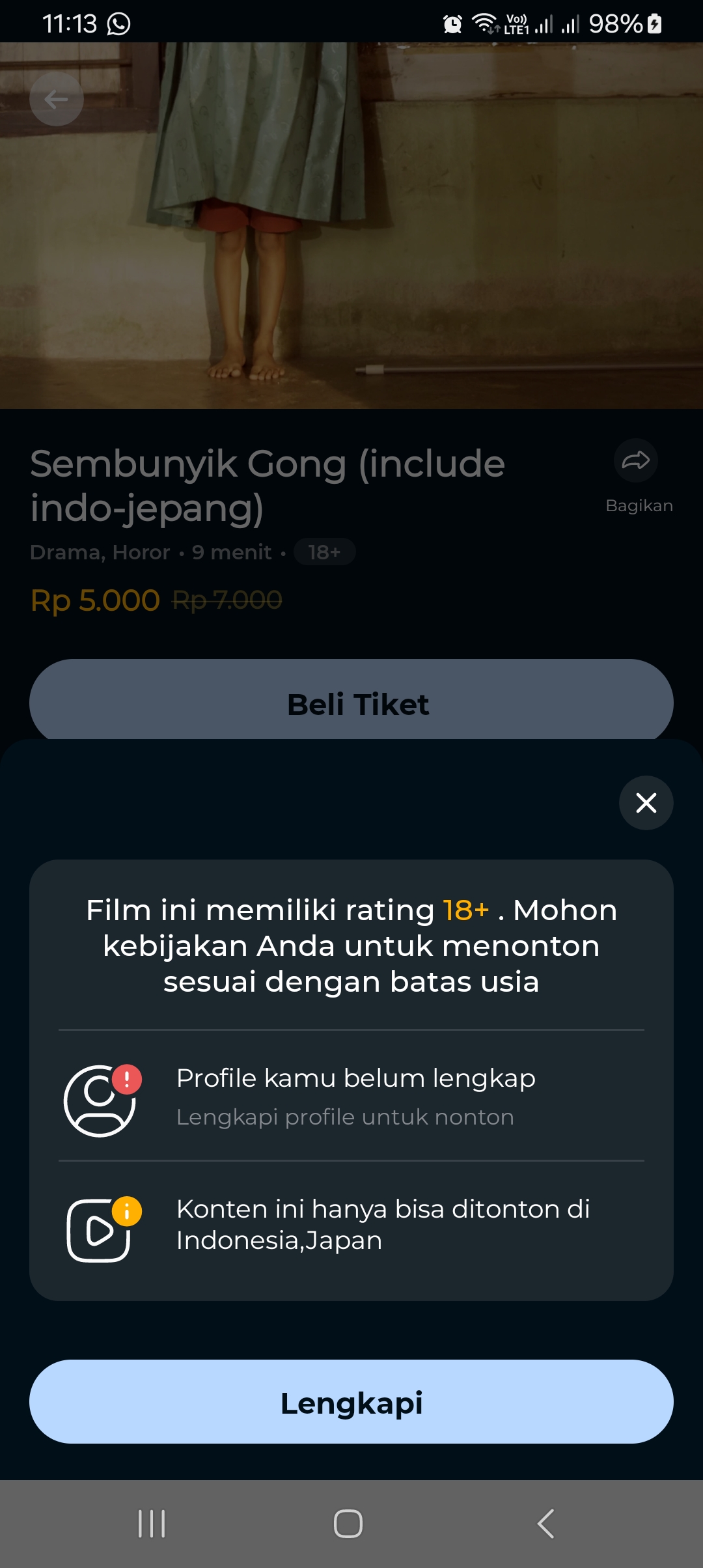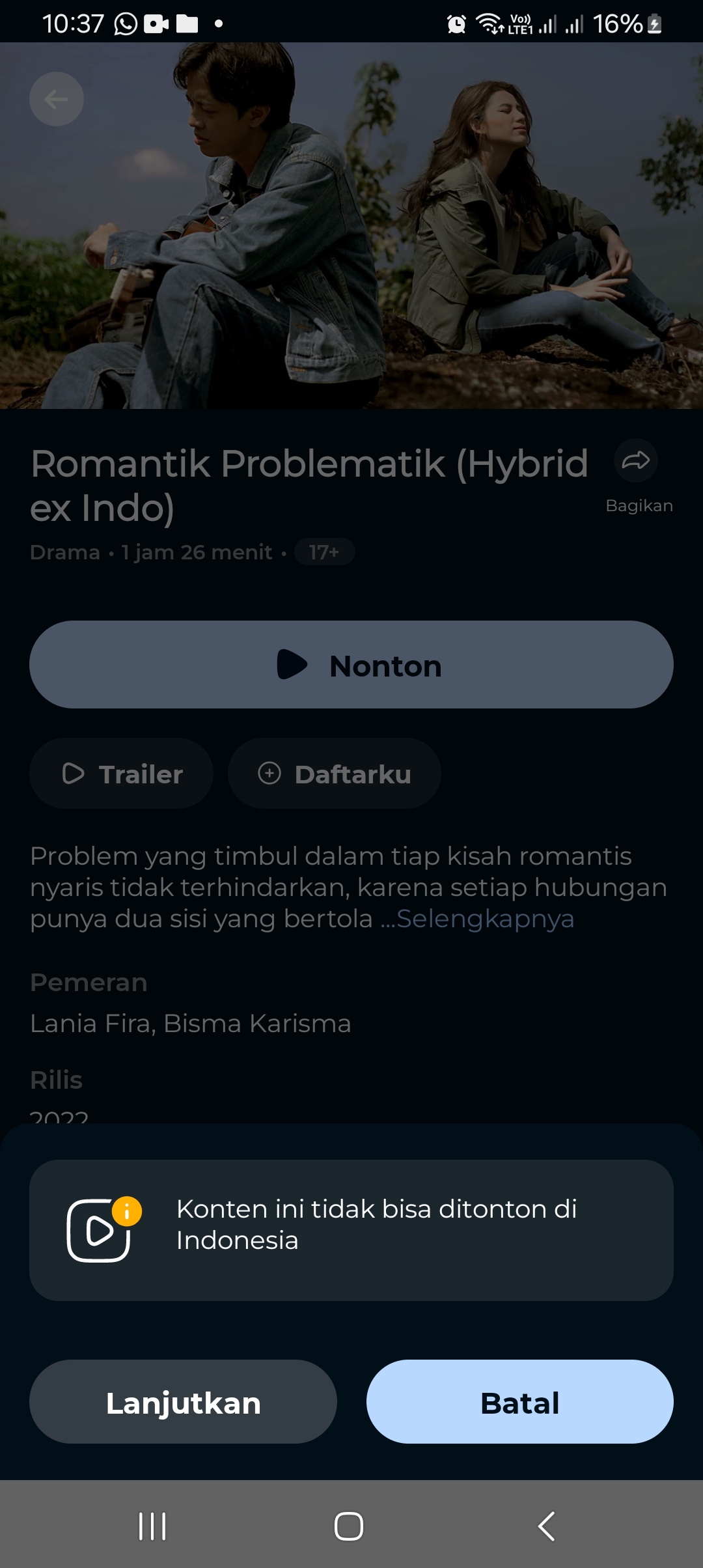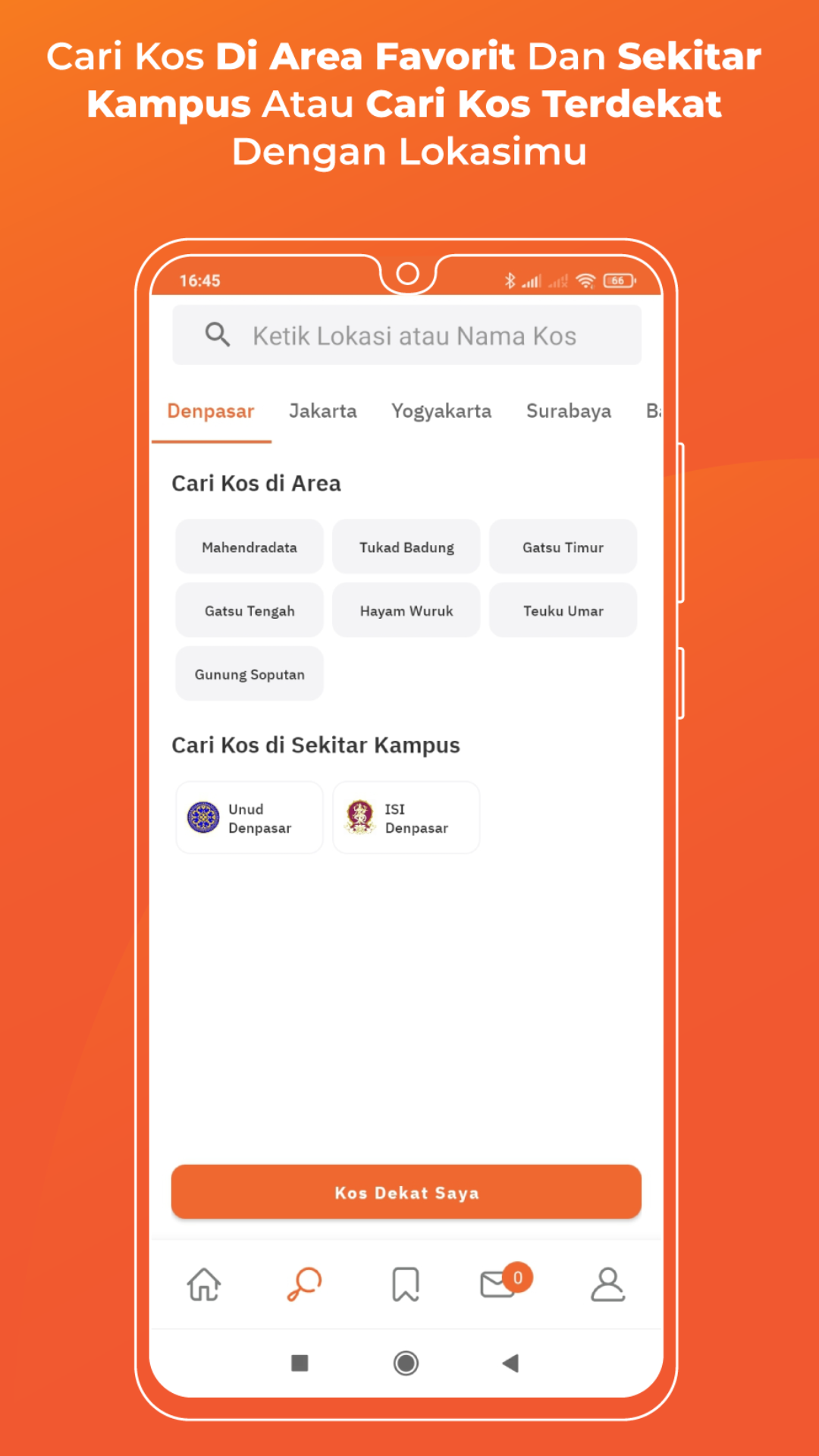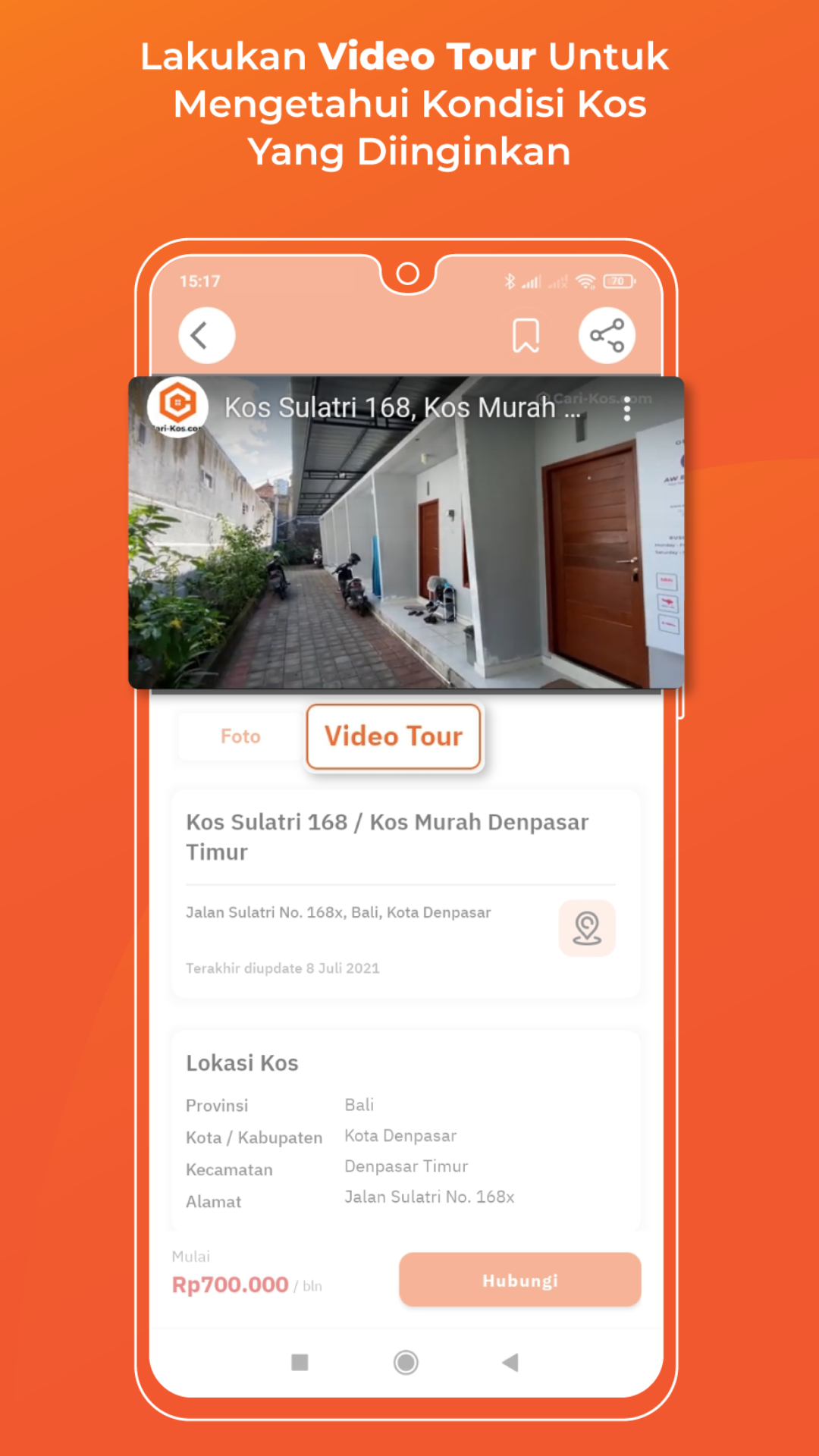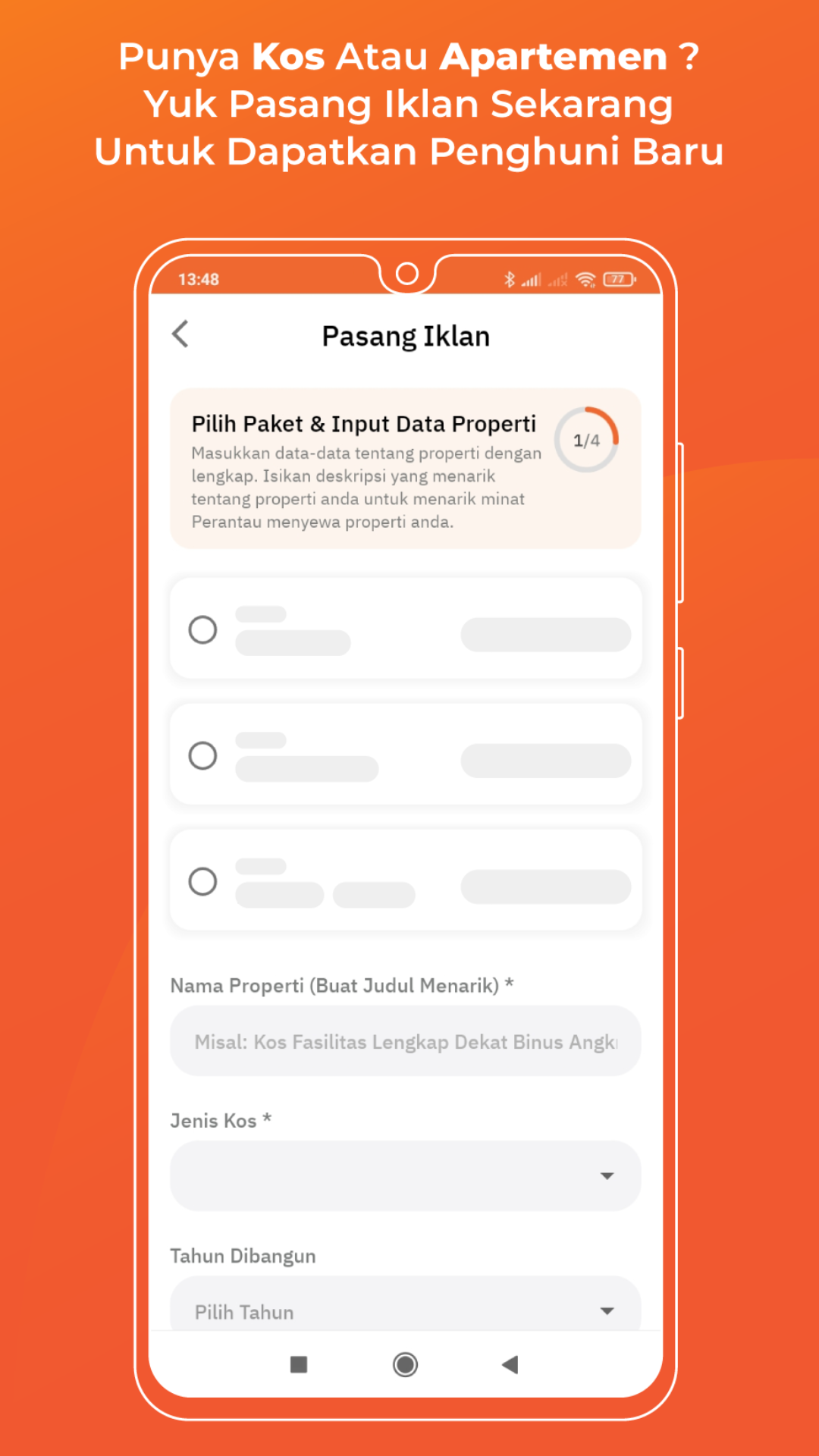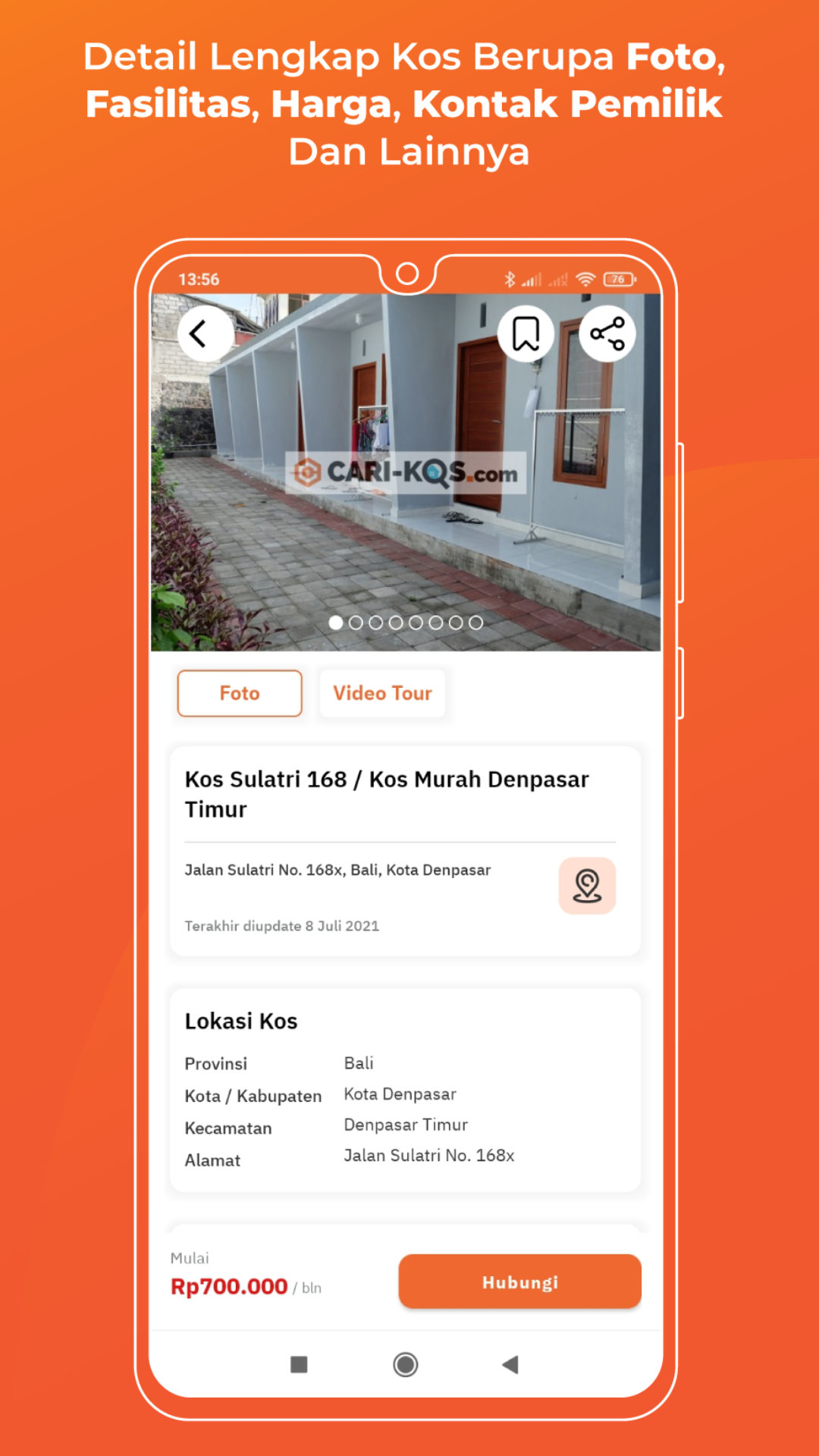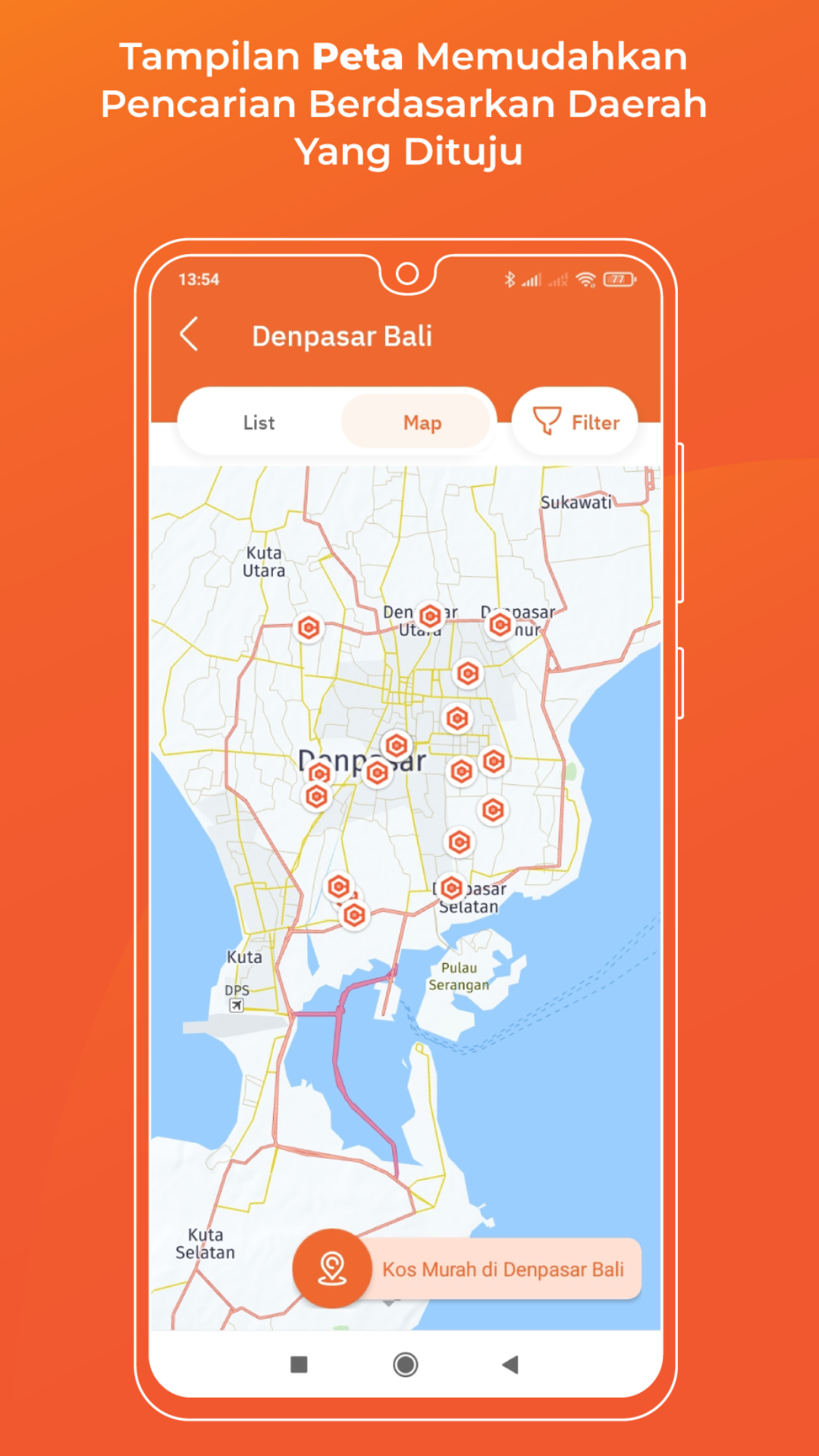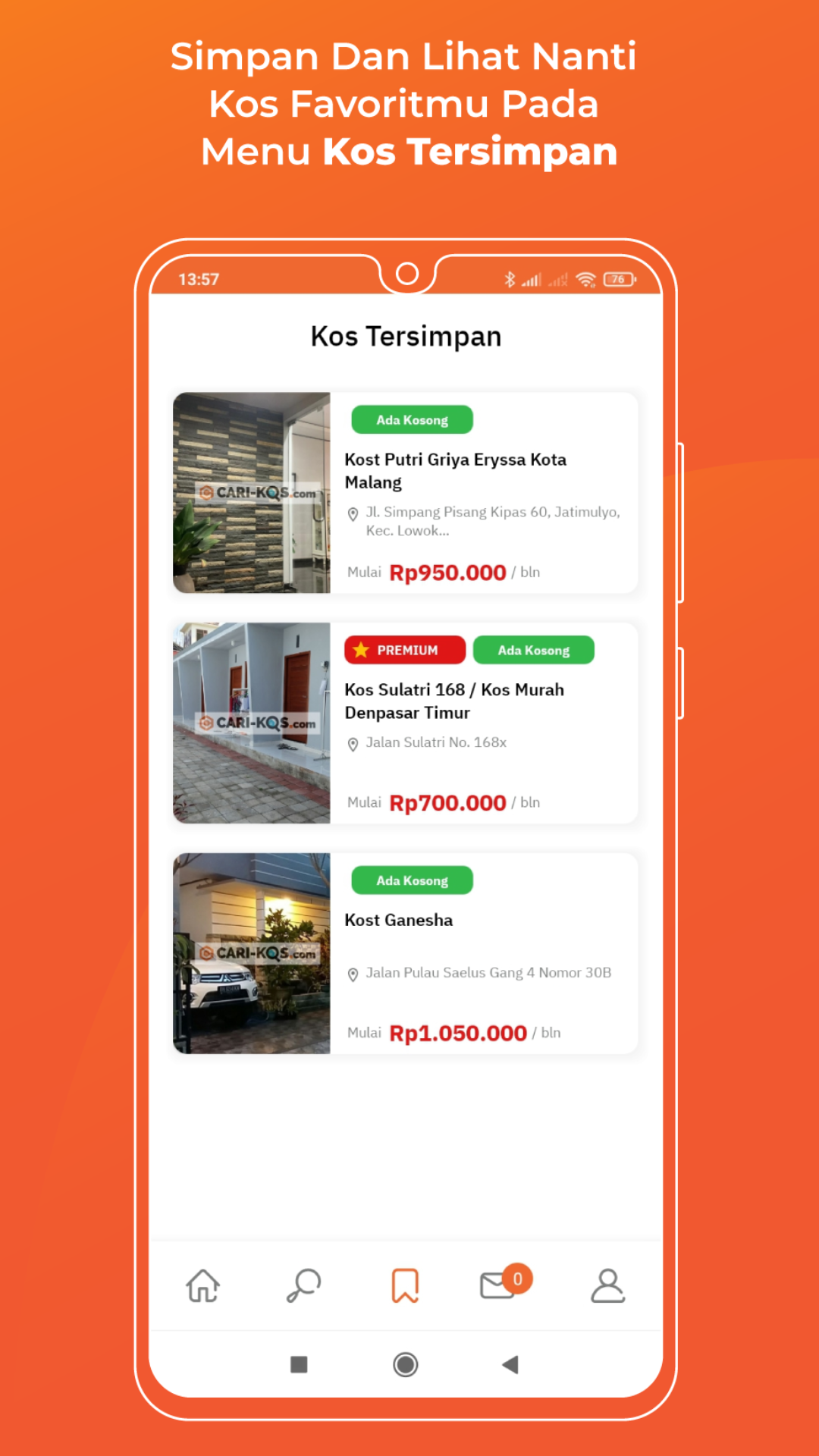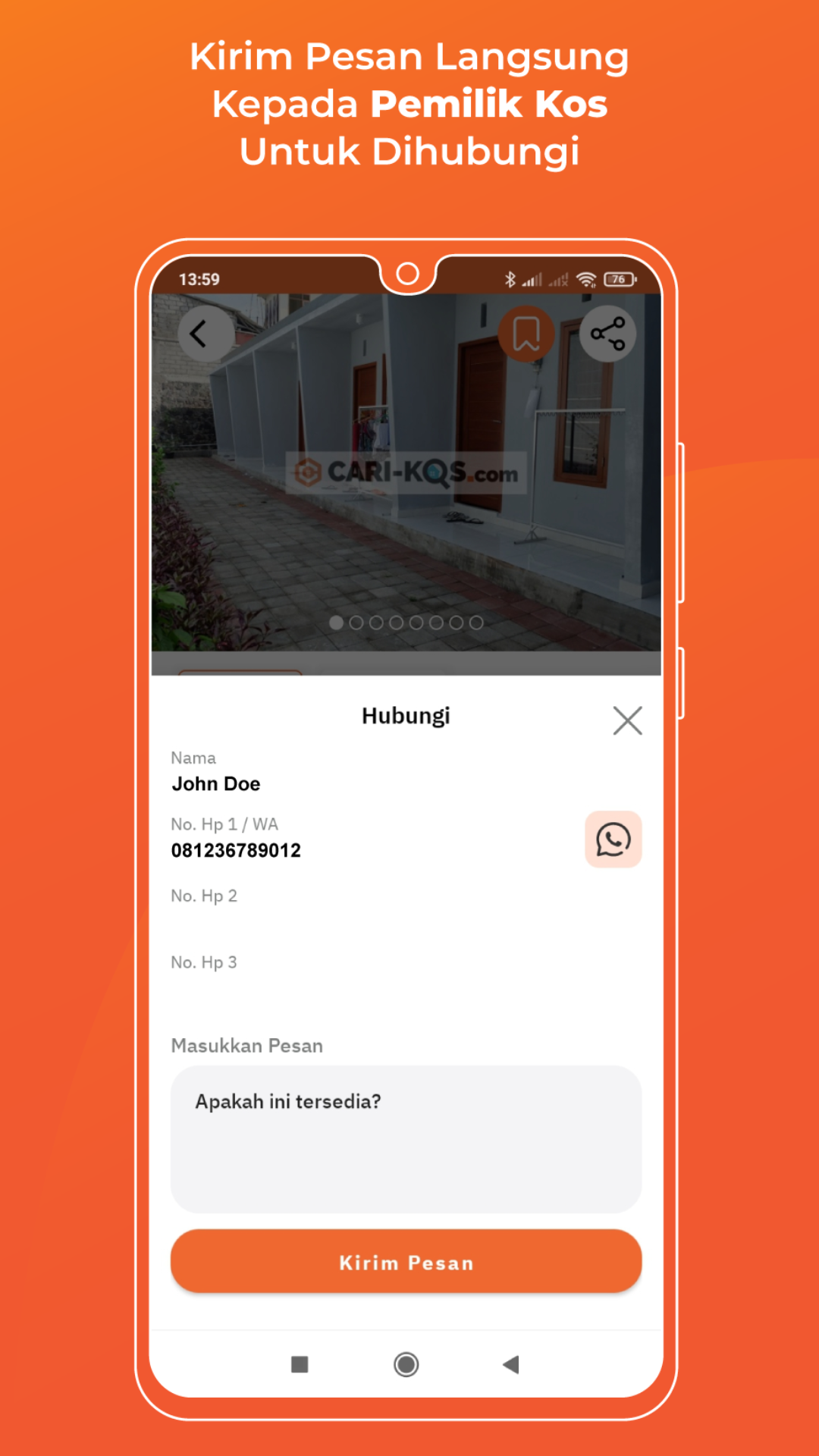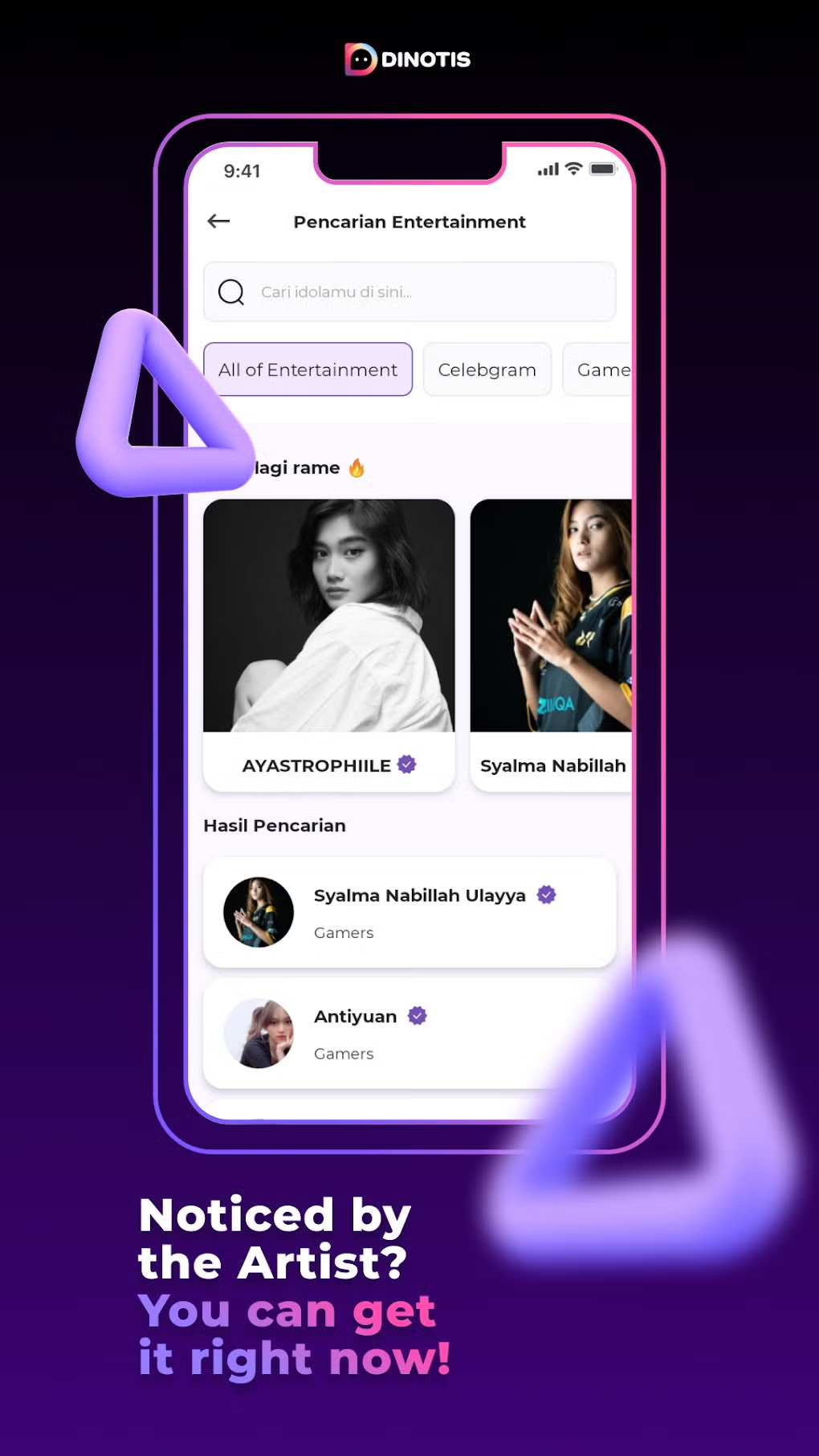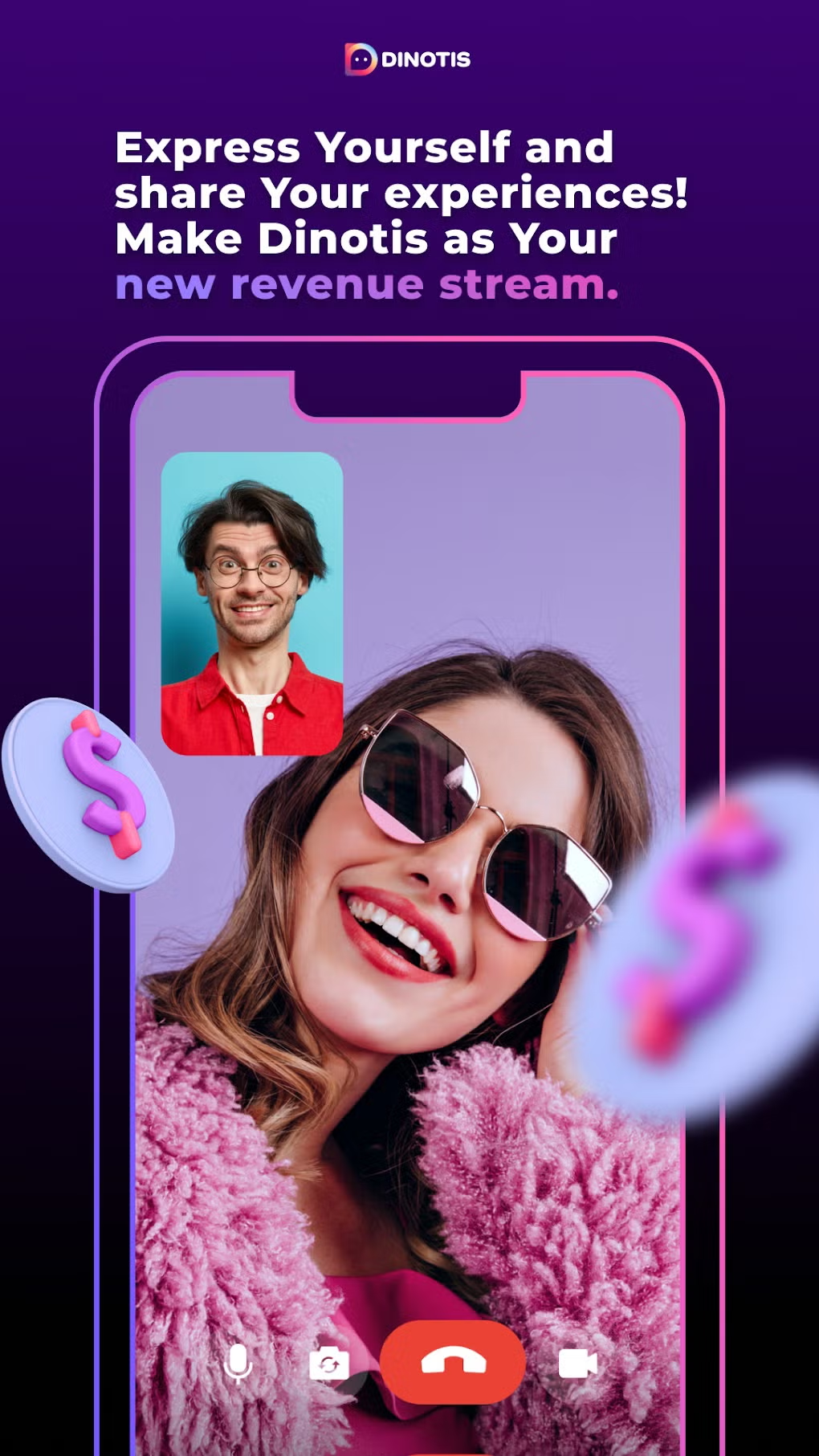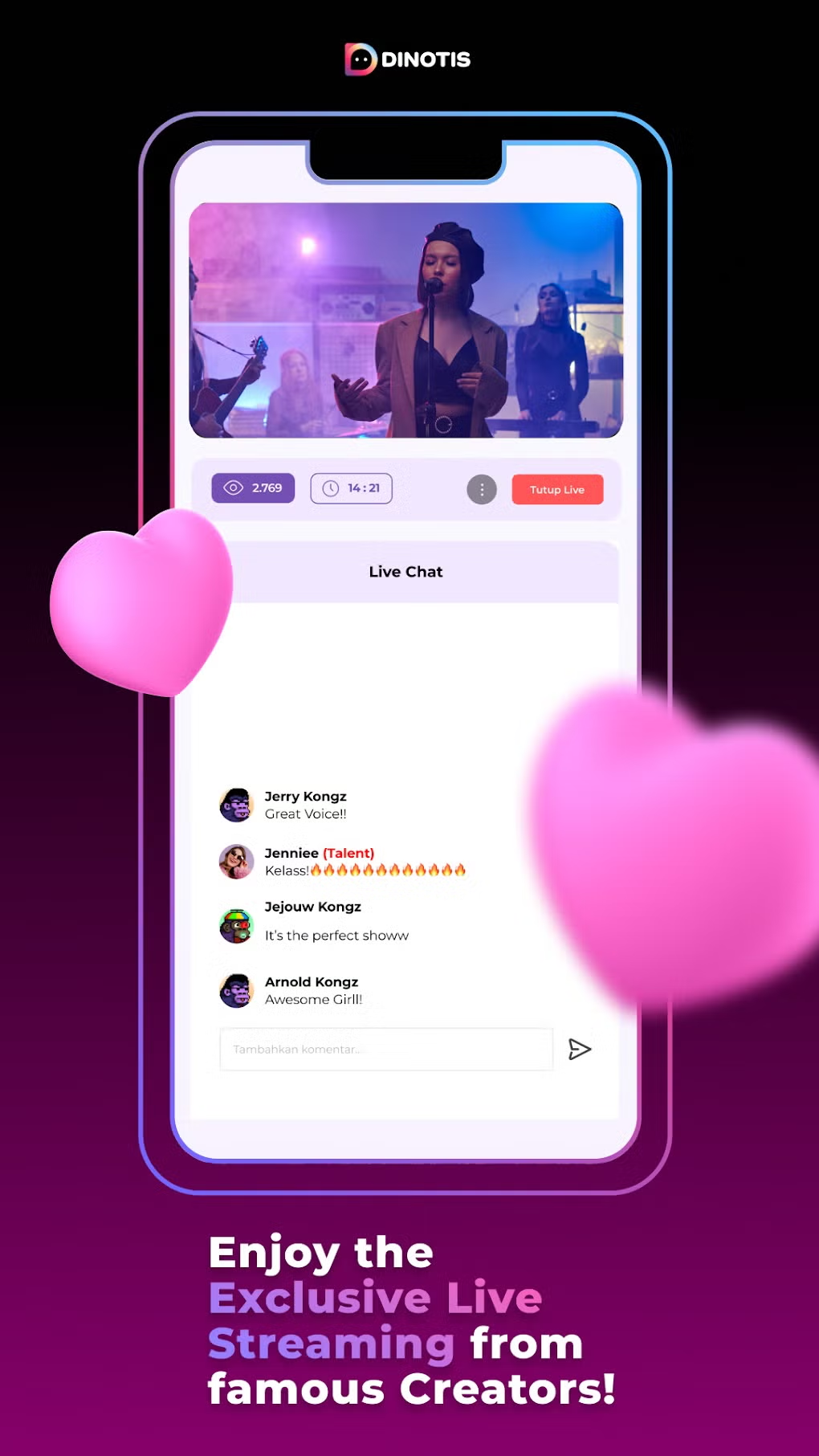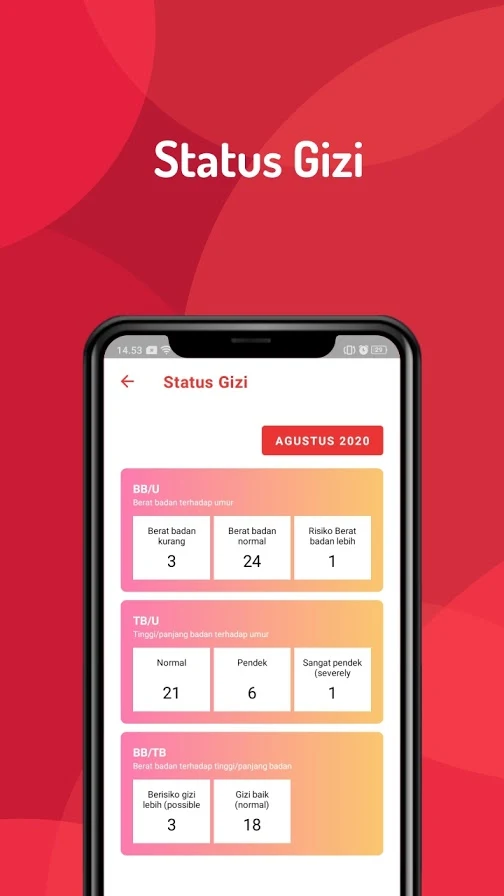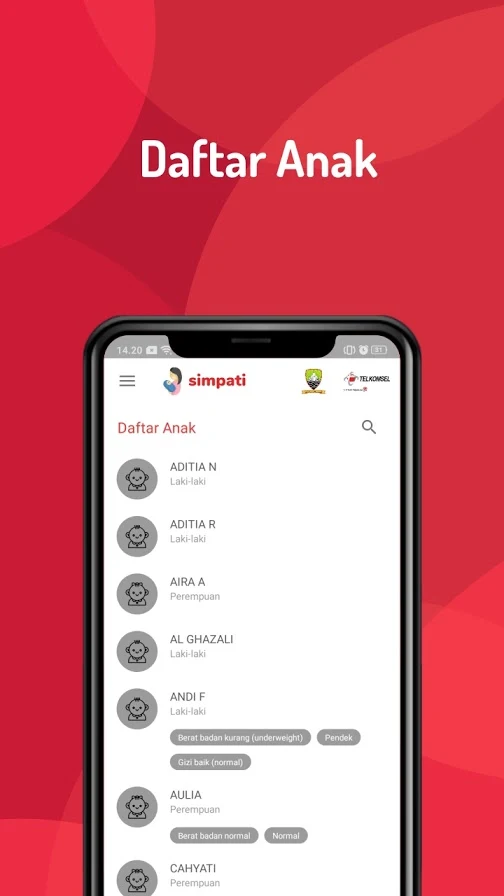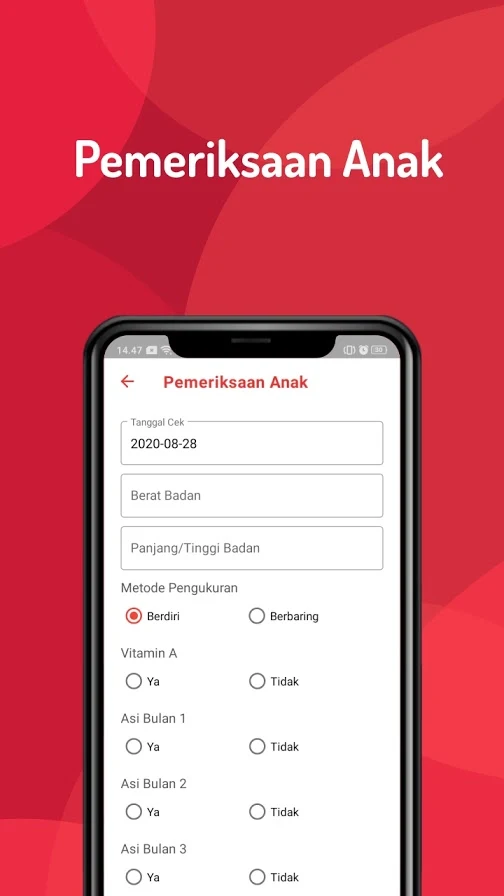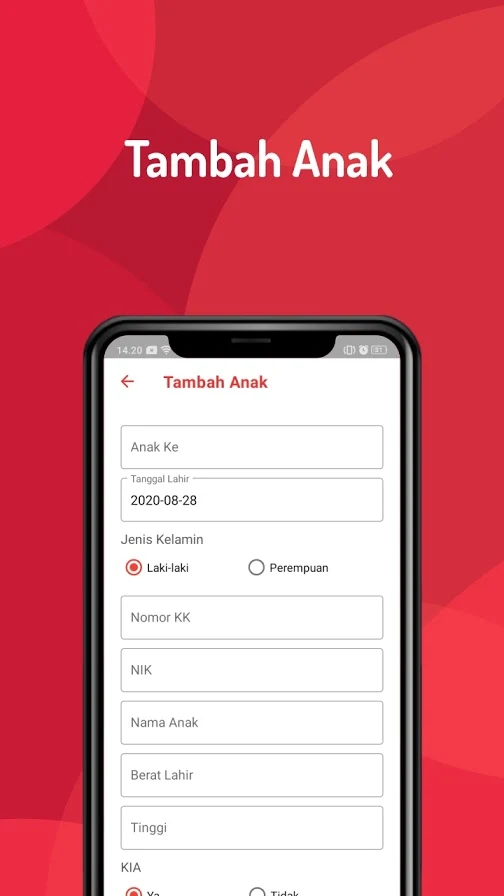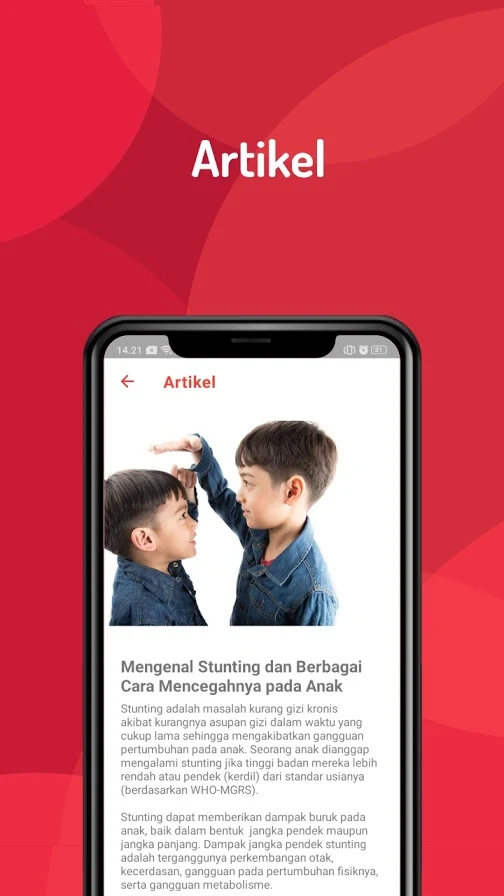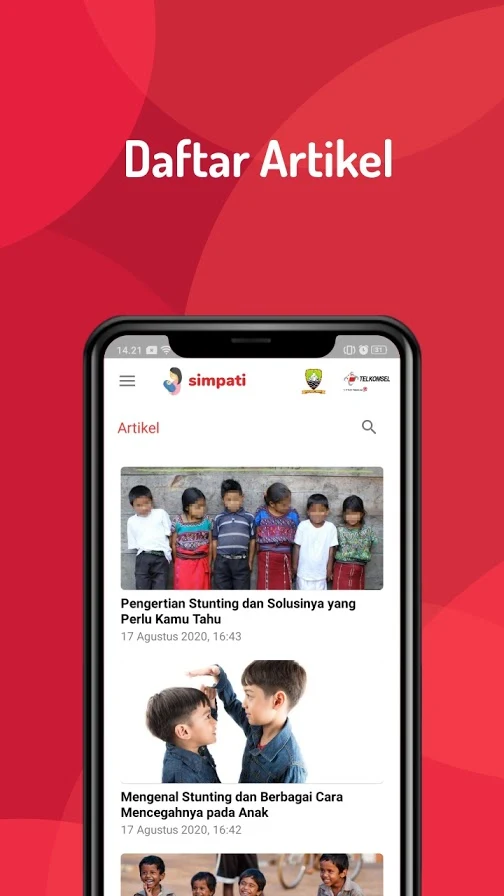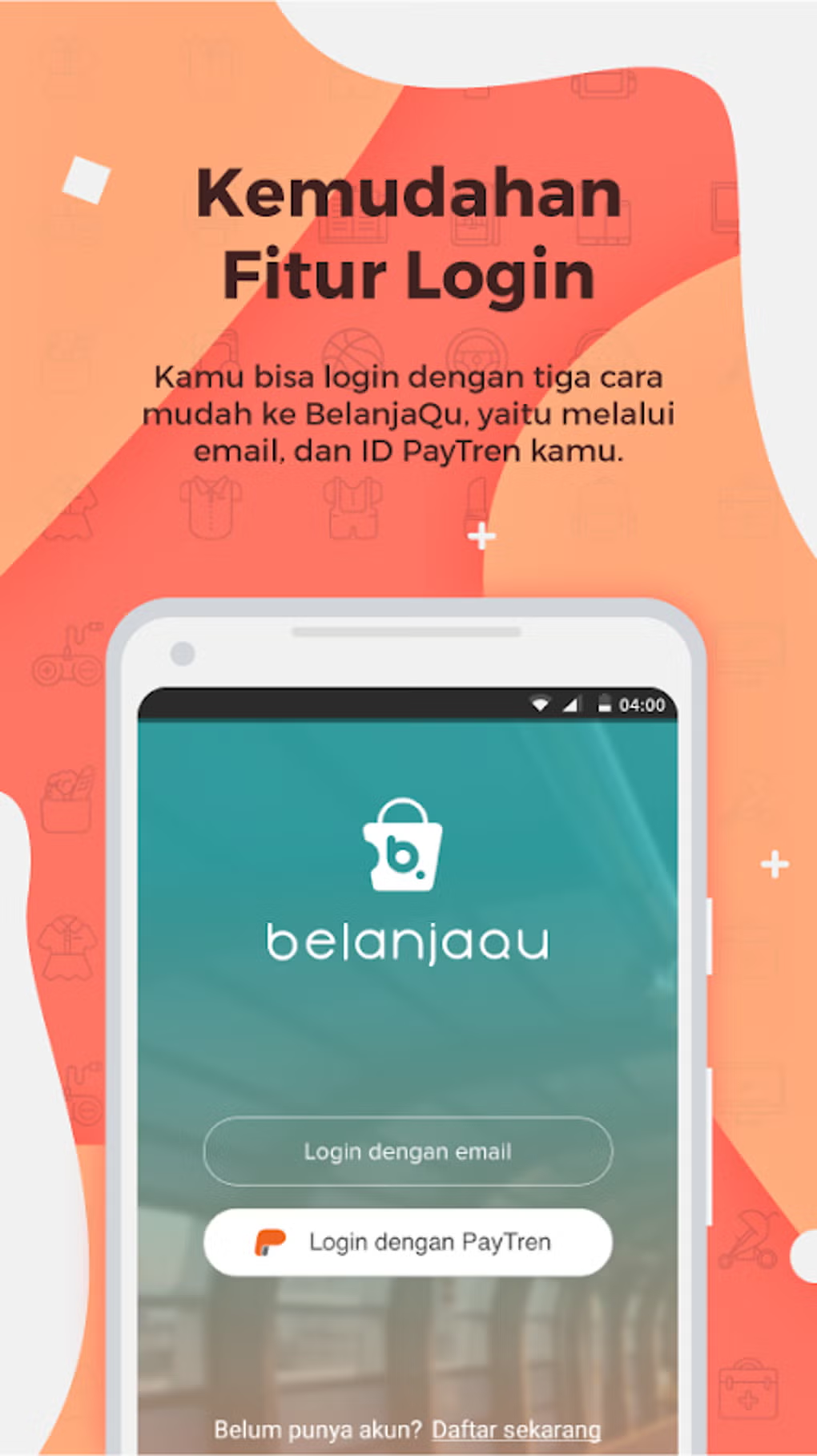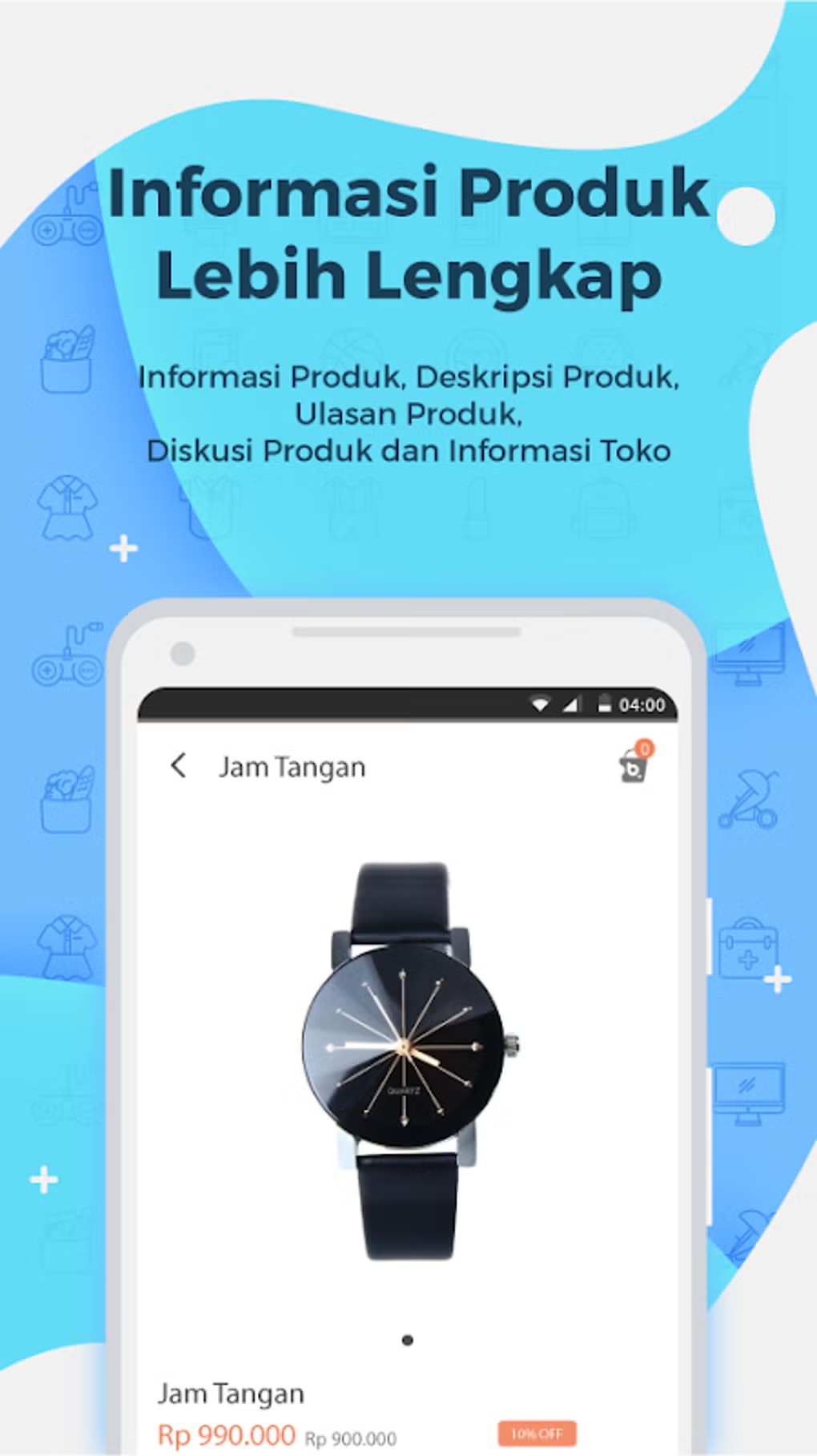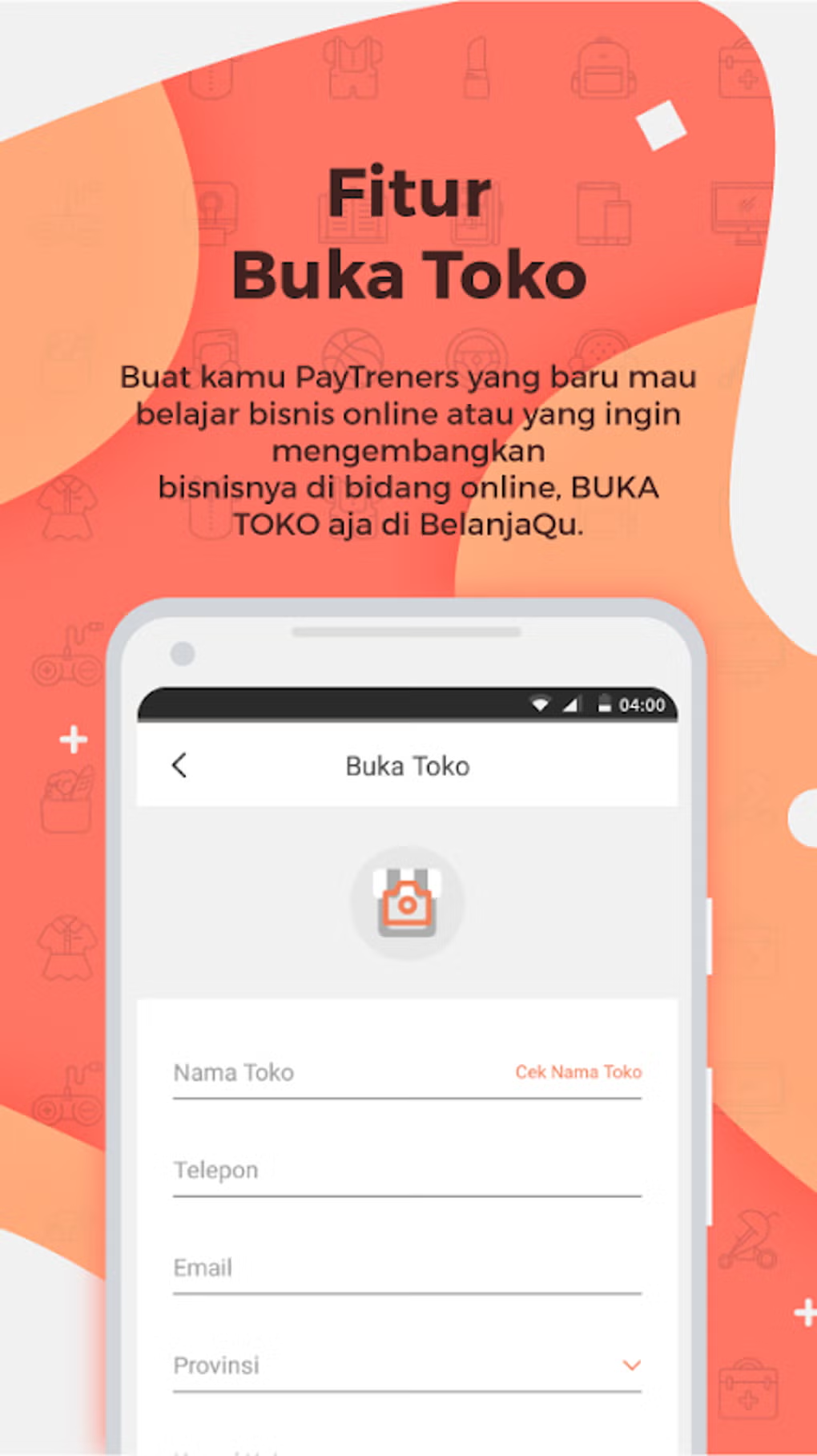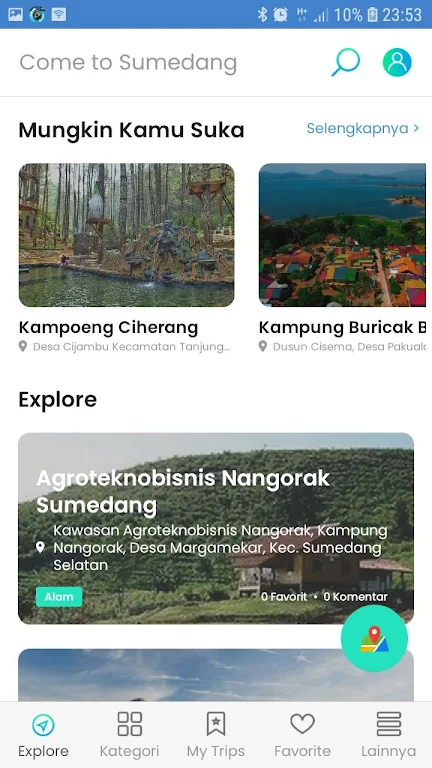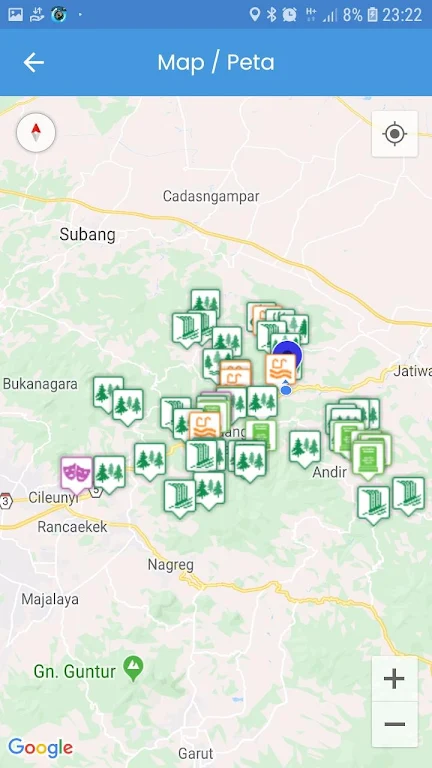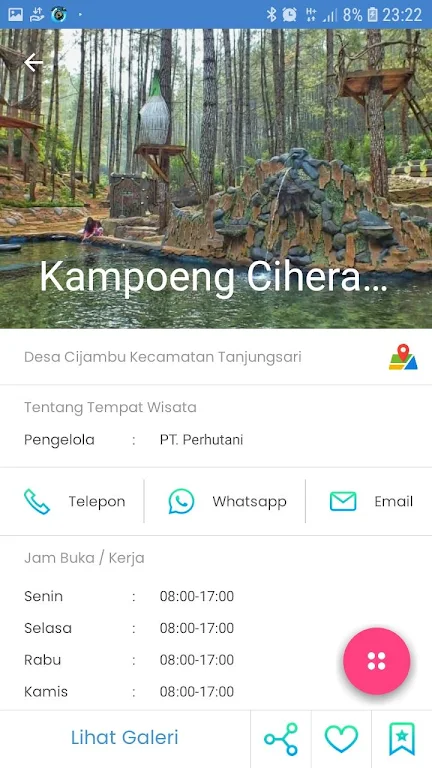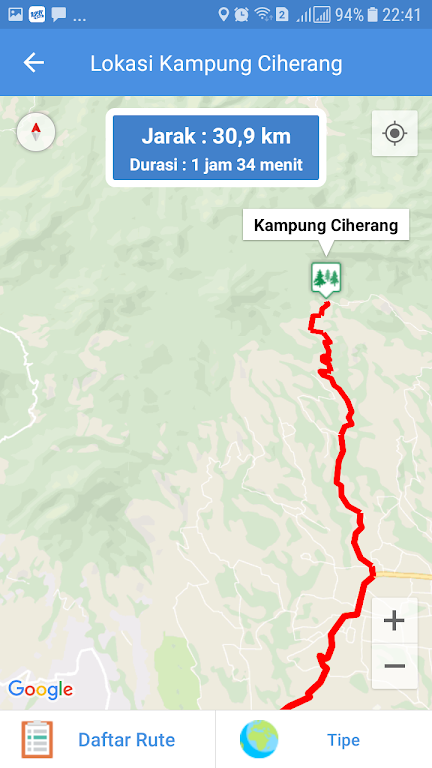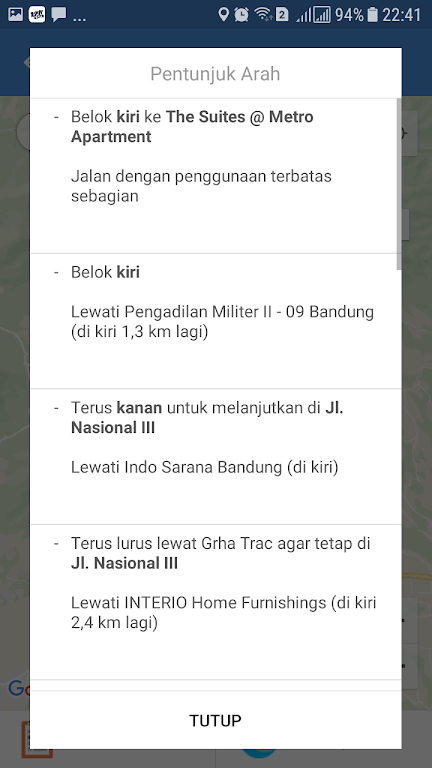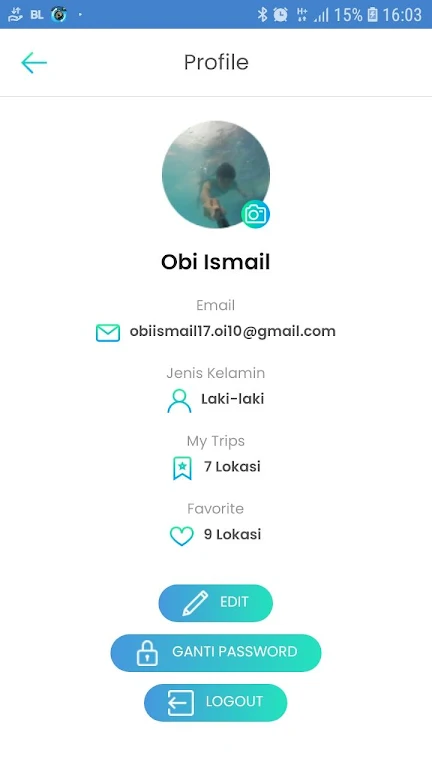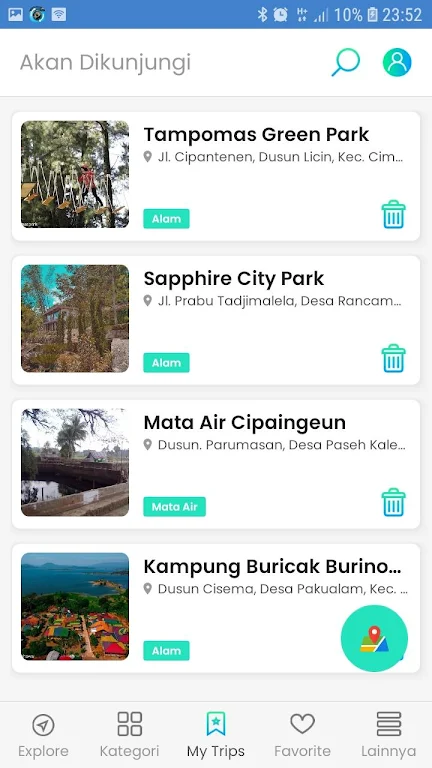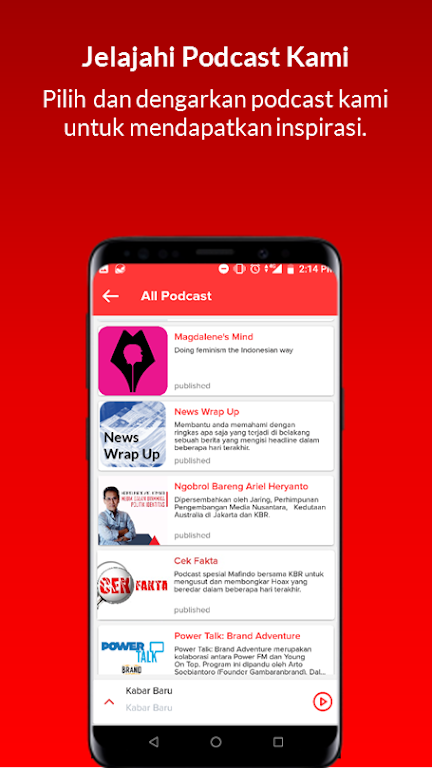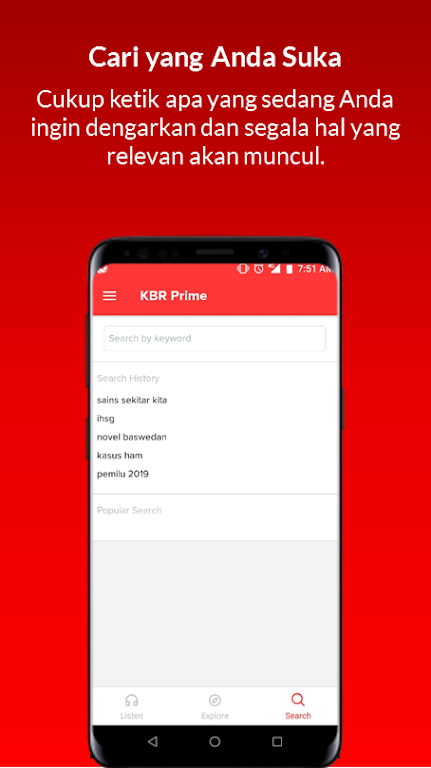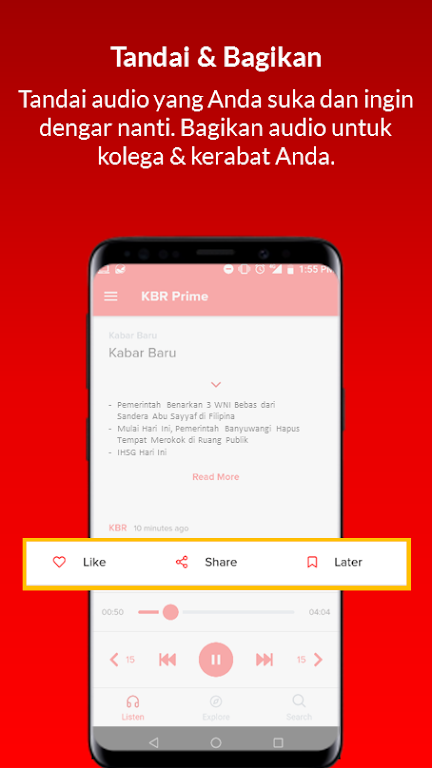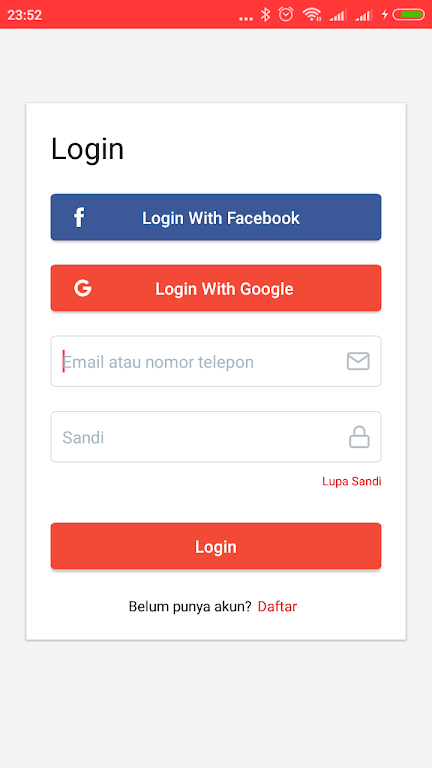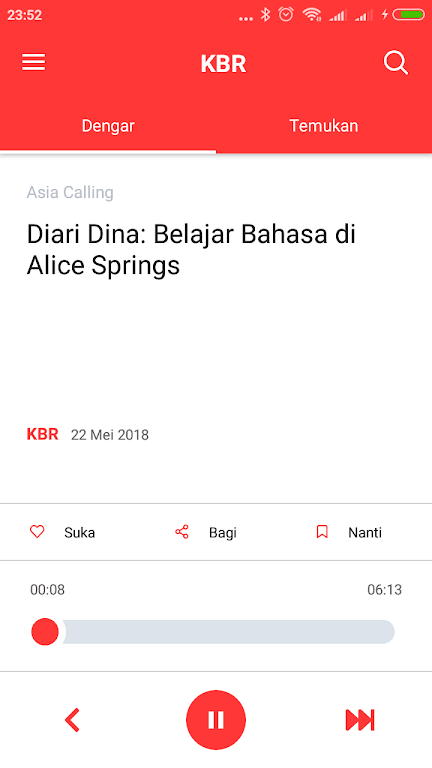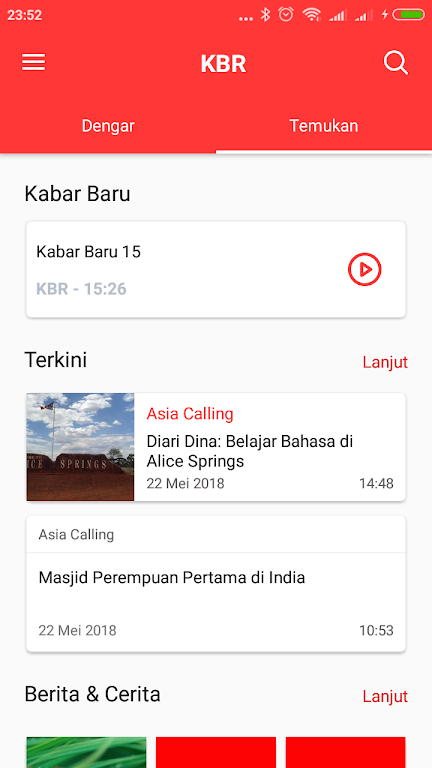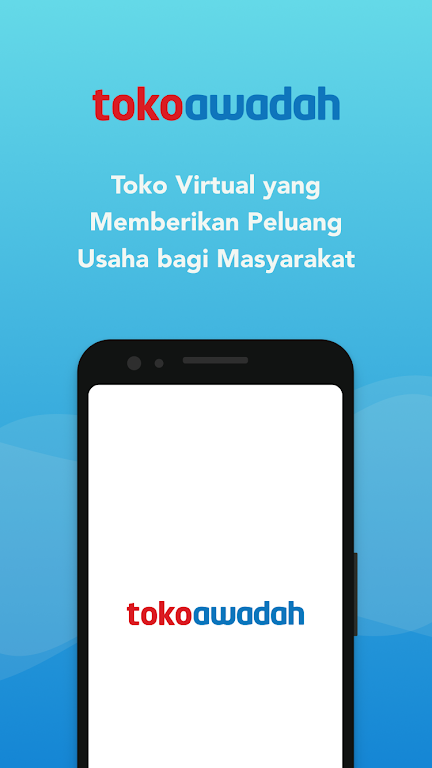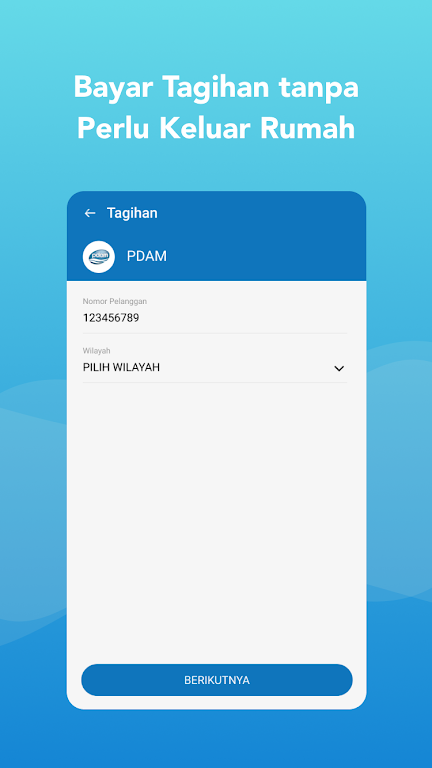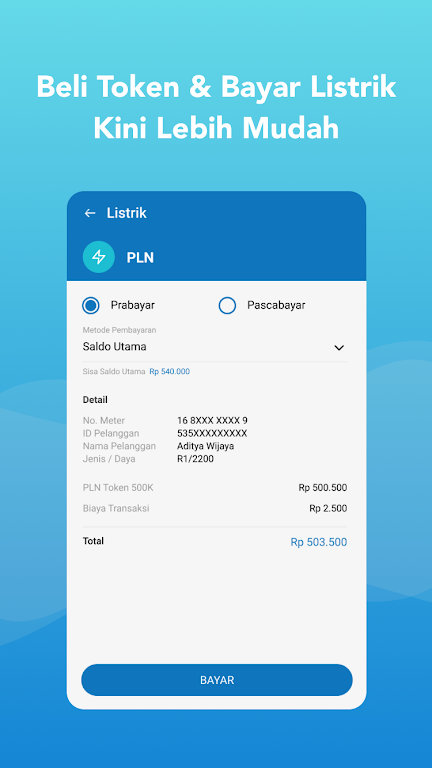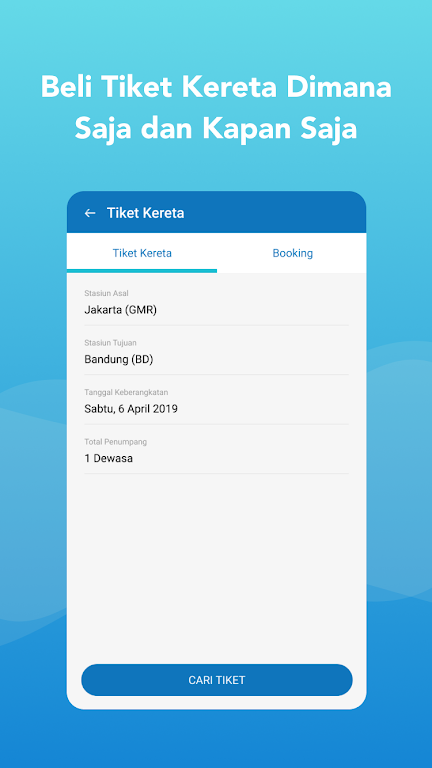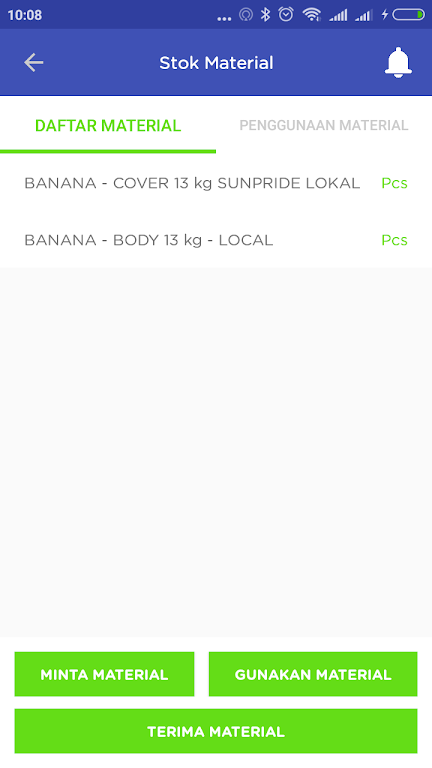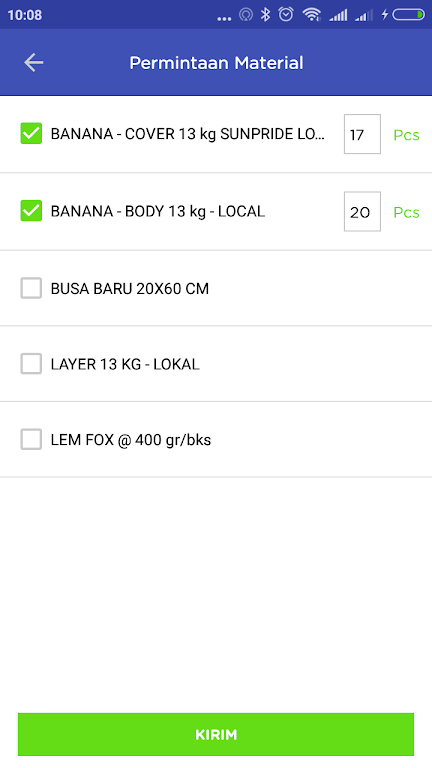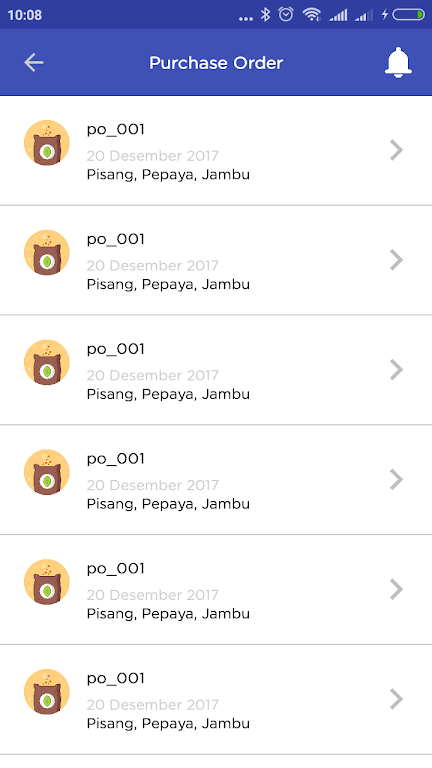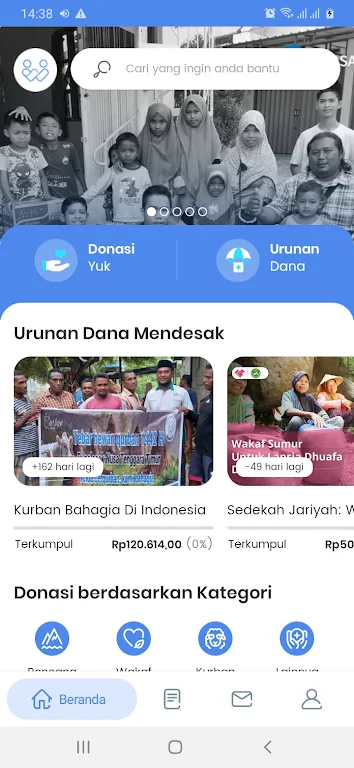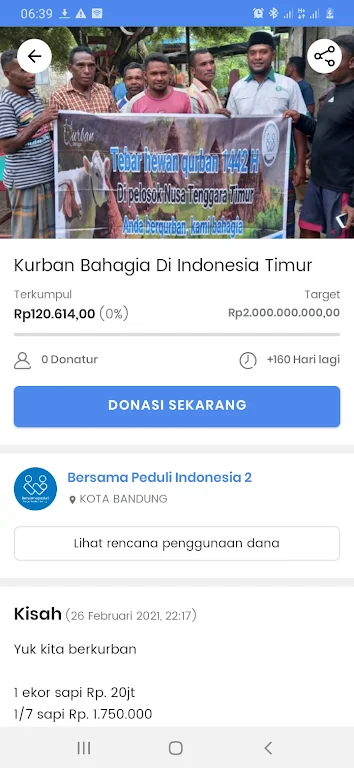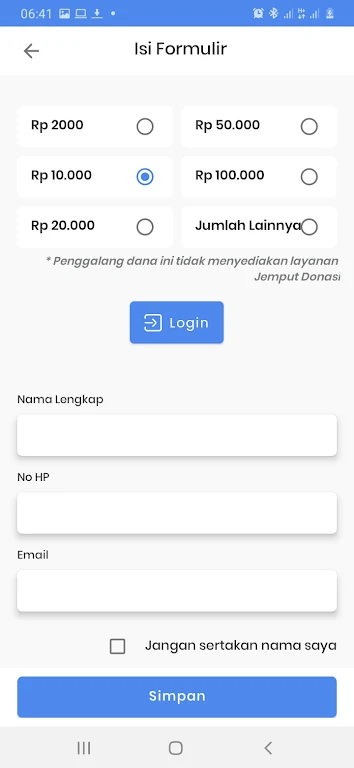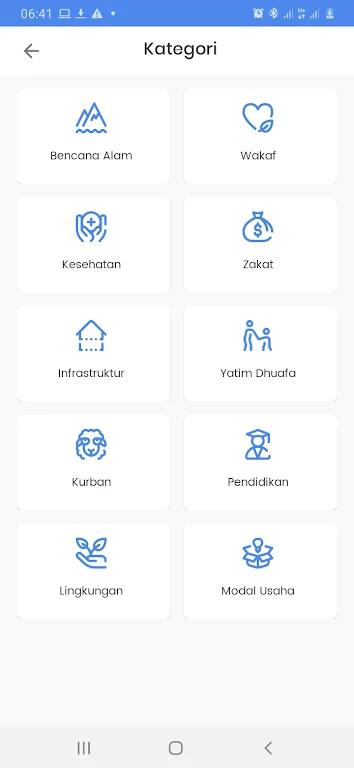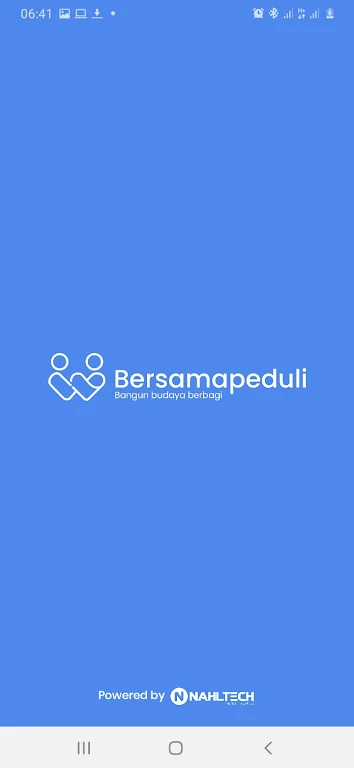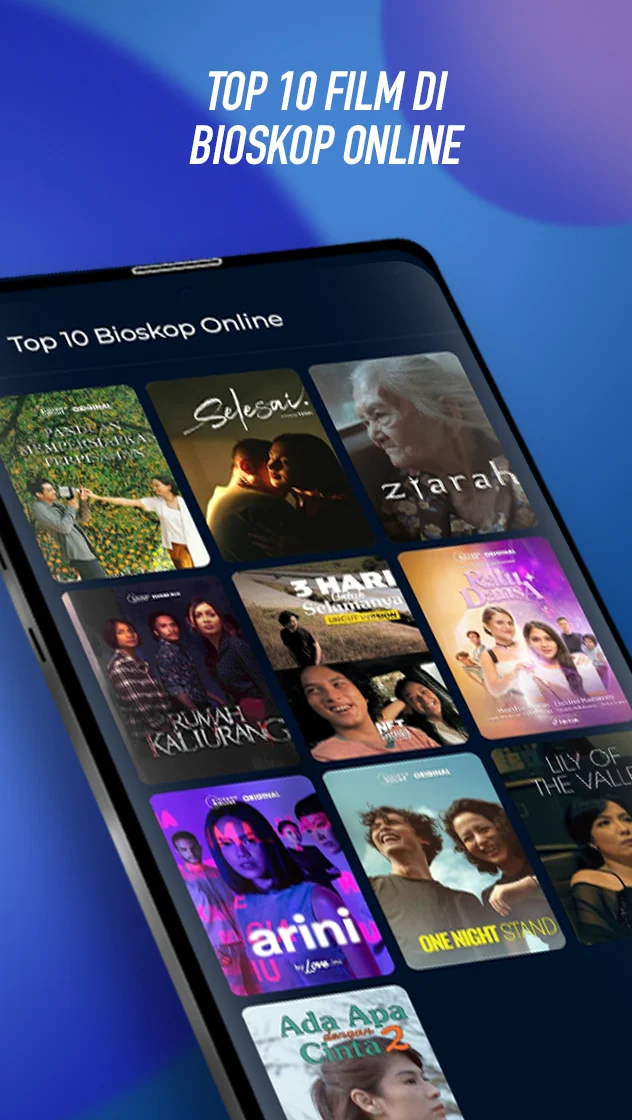Portfolio
Portfolio
Bioskop Online
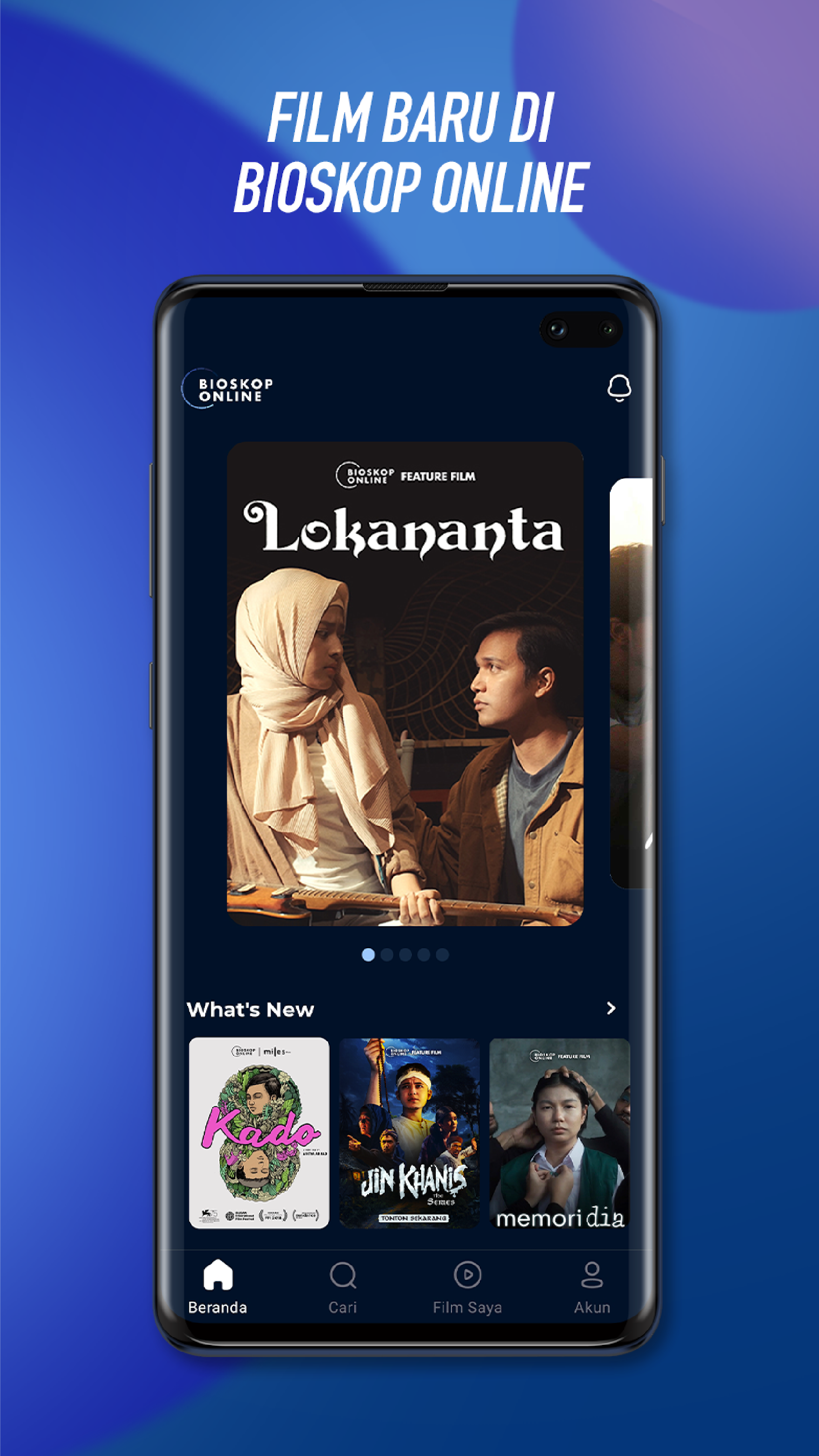
📱 Project Overview
Bioskop Online is a Transactional Video On Demand (TVOD) platform that allows users to legally purchase and stream Indonesian films. I was responsible for developing the Android application from the ground up using Kotlin, with a strong focus on performance, scalability, and user engagement.
Platform: Android NativeRole: Android Developer
Timeline: 2022 - Present
Status: 🟢 Production & Live on Google Play
Website: https://www.bioskoponline.com
🧰 Tools Used
- Android Studio: Main IDE for development
- Firebase: Authentication, Analytics, Crashlytics
- Facebook SDK: Social login
- CleverTap: Personalized push notifications and user engagement
- Brightcove Player: DRM-protected video streaming
- AppsFlyer: Attribution and campaign performance tracking
- Google Play Billing: Secure in-app purchases and ticketing
- Postman: API testing and debugging
- Figma: UI/UX design collaboration
- GitHub: Git-based version control
💡 Technology Stack
- Language: Kotlin
- Architecture: MVVM (Model-View-ViewModel)
- Dependency Injection: Dagger
- Networking: OKHttp, Retrofit
- Video Streaming: Brightcove Player
- Analytics & Marketing: Firebase, AppsFlyer, CleverTap
- In-App Payments: Google Play Billing Library
🛠️ Responsibilities & Contributions
- Developed the Android app from scratch using Kotlin and applied MVVM architecture for scalability and maintainability.
- Integrated Google Play Billing for secure purchase and rental of movies.
- Implemented Brightcove Player for high-quality video playback with DRM support.
- Built robust networking layers using OKHttp and Retrofit for API integration.
- Integrated Google and Facebook for social login.
- Enabled user re-engagement via CleverTap, including push notifications and user behavior segmentation.
- Used Firebase for crash monitoring, user analytics, and performance tracking.
- Closely collaborated with designers using Figma to ensure UI/UX consistency across devices.
- Conducted API testing and validation using Postman to ensure stable backend connectivity.
- Managed version control and collaborated on code via GitHub.
📈 Results & Impact
- Successfully launched on Google Play, reaching hundreds of thousands of users across Indonesia.
- Achieved a smooth payment flow with Google Play Billing, increasing conversion and reducing drop-offs.
- Boosted user engagement and retention through behavioral targeting with CleverTap and AppsFlyer.
- Delivered a premium, cinema-like experience directly on mobile through seamless Brightcove integration.
- Improved app performance and reduced crashes.
Cari Kos
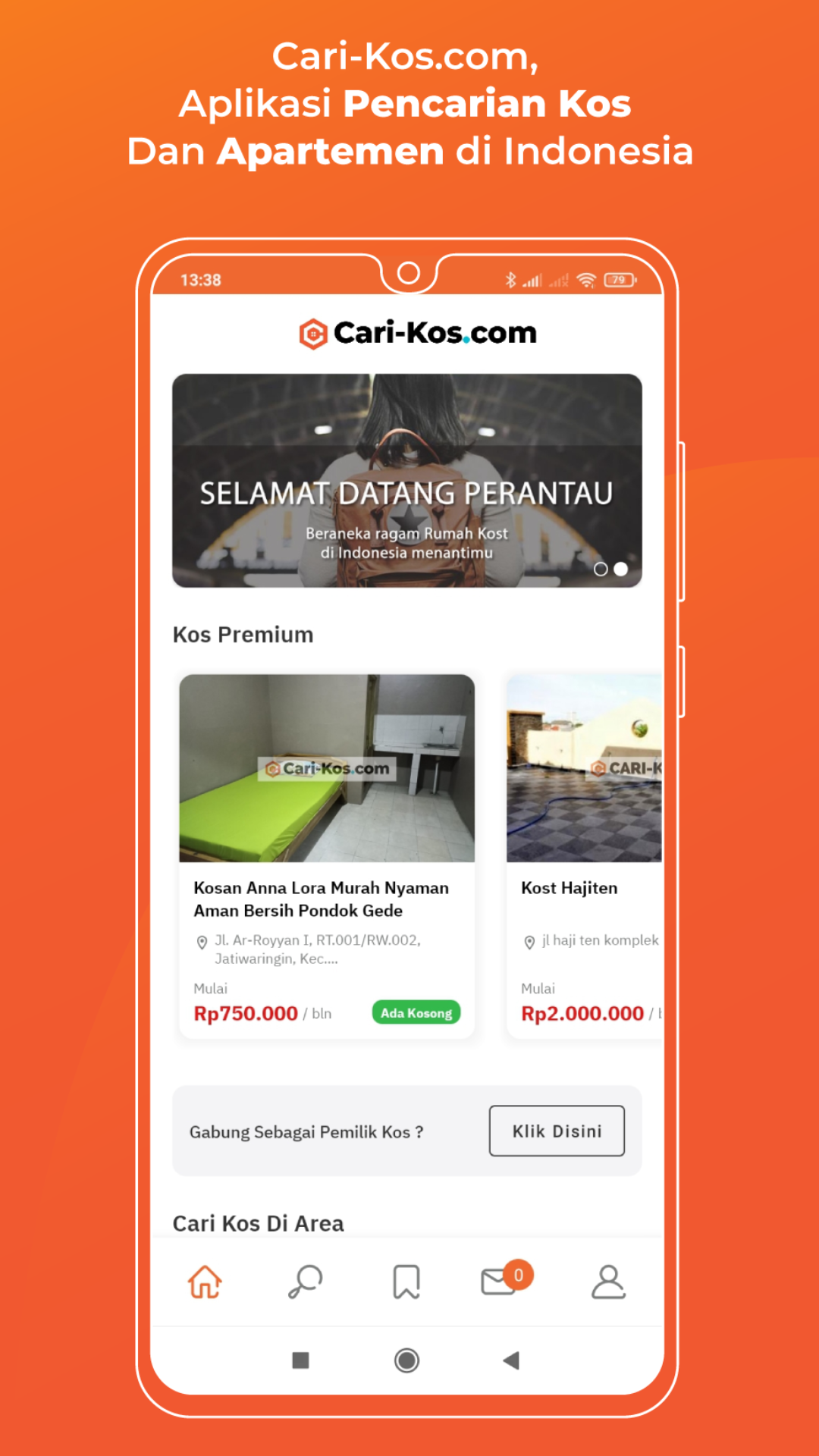
📱 Project Overview
Cari Kos is a location-based mobile application designed to help users find, explore, and book boarding houses (kos) in various cities across Indonesia. Developed using Kotlin with a focus on performance, usability, and real-time map integration, the app provides a seamless experience for users searching for nearby rentals with detailed information, filtering, and direct contact with property owners.
Platform: Android NativeRole: Android Developer
Timeline: 2021 - 2022
Status: 🟢 Production & Live on Google Play
Website: https://www.cari-kos.com
🧰 Tools Used
- Android Studio: Main IDE for development
- Firebase: Authentication, Analytics, Crashlytics
- Facebook SDK: Social login
- Google Maps SDK: Location tracking and property mapping
- Postman: API testing and debugging
- Figma: UI/UX design collaboration
- GitLab: Git-based version control
💡 Technology Stack
- Language: Kotlin
- Architecture: MVVM (Model-View-ViewModel)
- Dependency Injection: Dagger
- Networking: OKHttp, Retrofit
- Map Integration: Google Maps SDK
🛠️ Responsibilities & Contributions
- Developed the Android app from scratch using Kotlin and applied MVVM architecture for scalability and maintainability.
- Integrated Google Maps SDK for dynamic location-based listings, allowing users to find nearby boarding houses with visual accuracy.
- Developed a custom filtering system for price, distance, facilities, and room availability.
- Built robust networking layers using OKHttp and Retrofit for API integration.
- Integrated Google and Facebook for social login.
- Used Firebase for crash monitoring, user analytics, and performance tracking.
- Closely collaborated with designers using Figma to ensure UI/UX consistency across devices.
- Conducted API testing and validation using Postman to ensure stable backend connectivity.
- Managed version control and collaborated on code via GitLab.
📈 Results & Impact
- Successfully launched on Google Play, reaching hundreds of thousands of users across Indonesia.
- Location-based search and Google Maps integration significantly enhanced user experience and discovery accuracy.
- Achieved high user satisfaction for performance, map functionality, and interface clarity.
- Improved app performance and reduced crashes.
Dinotis
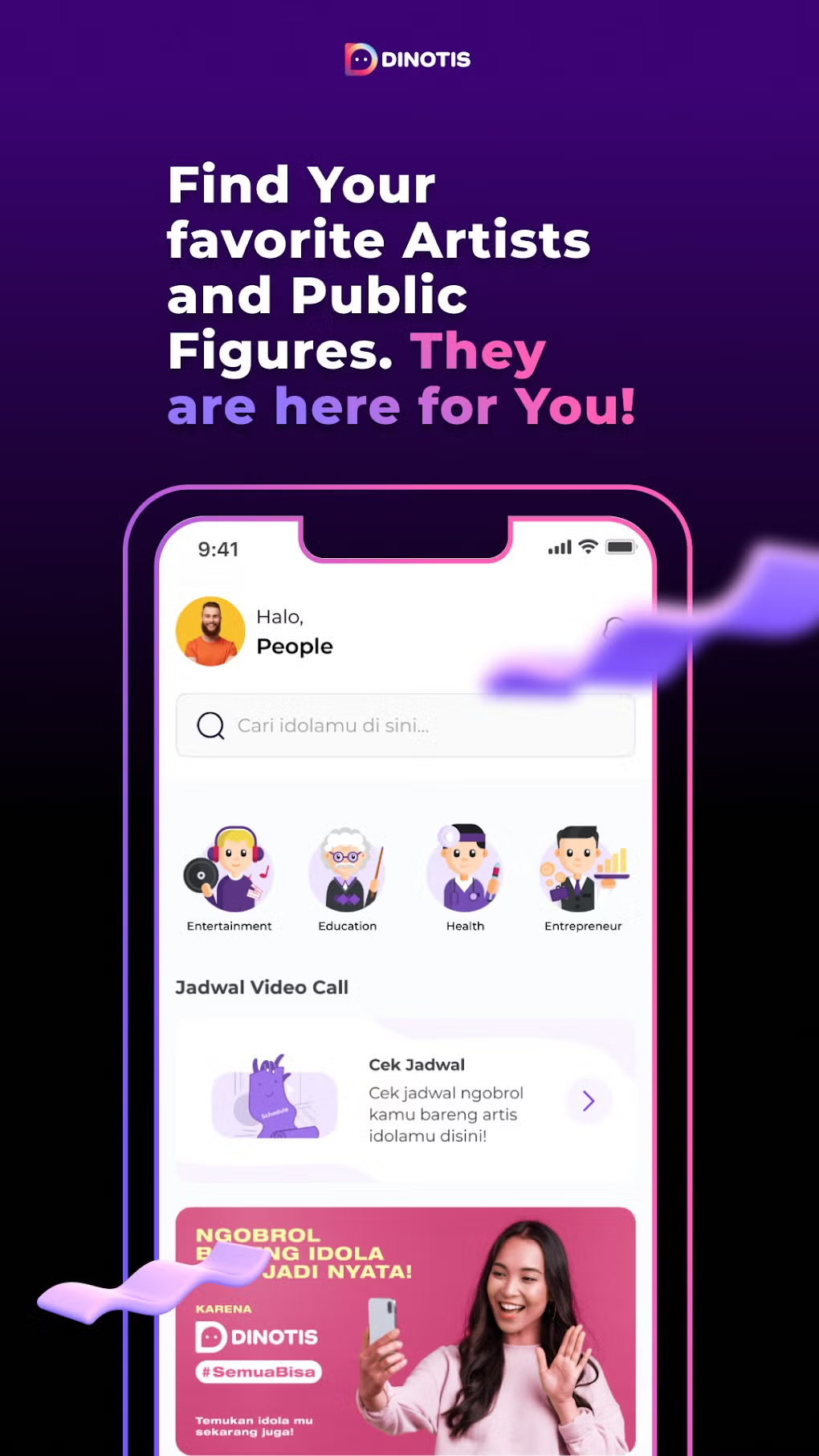
📱 Project Overview
Dinotis is a creative platform designed to empower creators by facilitating personal interactions, group workshops, and digital audience sessions. Built using Kotlin for Android, the app provides a seamless space for creators and fans to connect through live sessions, scheduling, and monetization features. I led the development of the Android app from scratch, handling all aspects of implementation, integration, and optimization.
Platform: Android NativeRole: Android Developer
Timeline: 2021 - 2022
Status: 🟢 Production & Live on Google Play
Website: https://www.dinotis.com
🧰 Tools Used
- Android Studio: Main IDE for development
- Firebase: Authentication, Analytics, Crashlytics
- Facebook SDK: Social login
- Agora SDK: Real-time video/audio calls and live streaming
- Swagger: API documentation and backend testing
- Figma: UI/UX design collaboration
💡 Technology Stack
- Language: Kotlin
- Architecture: MVVM (Model-View-ViewModel)
- Dependency Injection: Dagger
- Networking: OKHttp, Retrofit
- Real-Time Communication: Agora SDK
🛠️ Responsibilities & Contributions
- Developed the Android app from scratch using Kotlin and applied MVVM architecture for scalability and maintainability.
- Integrated Agora SDK to support real-time audio/video sessions and group workshops, ensuring low-latency performance.
- Implemented dynamic session scheduling, payment triggers, and push notifications for user engagement.
- Built robust networking layers using OKHttp and Retrofit for API integration.
- Connected the frontend with documented APIs using Retrofit and tested endpoints through Swagger.
- Integrated Google and Facebook for social login.
- Used Firebase for crash monitoring, user analytics, and performance tracking.
- Closely collaborated with designers using Figma to ensure UI/UX consistency across devices.
- Managed version control and collaborated on code via GitLab.
📈 Results & Impact
- Successfully launched on Google Play, attracting a growing base of creators and users.
- Live session quality exceeded performance benchmarks due to Agora integration.
- Improved user retention with real-time notifications and seamless session scheduling.
- Achieved high user satisfaction for performance, map functionality, and interface clarity.
- Improved app performance and reduced crashes.
Simpati (Sistem Pencegahan Stunting)
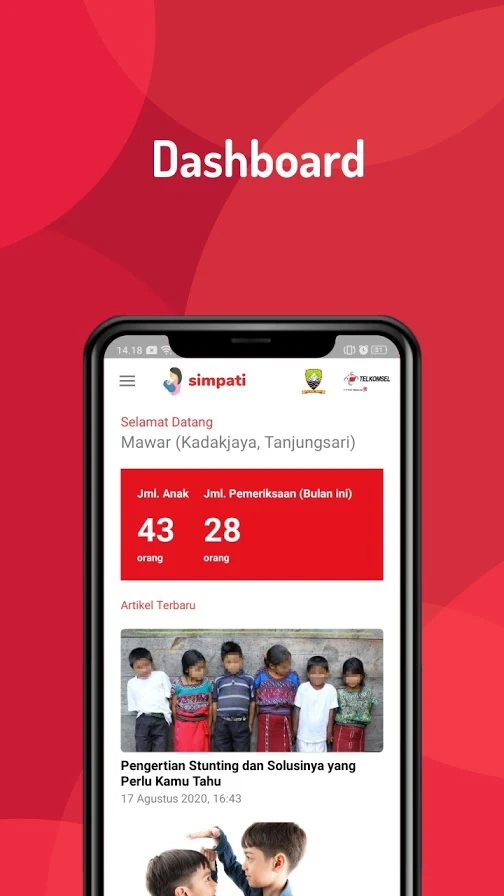
📱 Project Overview
SIMPATI (Sistem Pencegahan Stunting) is a mobile application developed as part of the Sumedang Digital Region initiative — a strategic collaboration between the Government of Sumedang Regency and Telkomsel. The application serves as a data collection and reporting system for early childhood (balita) health metrics, aiming to act as a catalyst in the prevention of stunting. Through streamlined field data entry and real-time reporting, SIMPATI helps health workers and government institutions make data-driven decisions to improve child nutrition and development outcomes.
Platform: Android NativeRole: Android Developer
Timeline: 2020 - 2022
Status: 🟢 Production & Live on Google Play
Website: https://simpati.app
🧰 Tools Used
- Android Studio: Main IDE for development
- Firebase: Analytics, Crashlytics
- Swagger: API documentation and backend testing
- Figma: UI/UX design collaboration
- GitHub: Git-based version control
💡 Technology Stack
- Language: Kotlin
- Architecture: MVVM (Model-View-ViewModel)
- Dependency Injection: Dagger
- Networking: OKHttp, Retrofit
🛠️ Responsibilities & Contributions
- Developed the Android app from scratch using Kotlin and applied MVVM architecture for scalability and maintainability.
- Designed features to support input of child growth metrics (e.g., weight, height, nutrition status) and location tagging.
- Built robust networking layers using OKHttp and Retrofit for API integration.
- Connected the frontend with documented APIs using Retrofit and tested endpoints through Swagger.
- Used Firebase for crash monitoring, user analytics, and performance tracking.
- Closely collaborated with designers using Figma to ensure UI/UX consistency across devices.
- Managed version control and collaborated on code via GitHub.
📈 Results & Impact
- Successfully deployed in Sumedang Regency and launched on Google Play, used by health officers to collect real-time data on child growth and stunting indicators.
- Enhanced accuracy and speed of field data reporting, reducing manual paperwork and errors.
- Enabled local government to make faster, evidence-based interventions in high-risk areas.
- Recognized as a digital innovation supporting Indonesia’s broader goals in public health and child development.
- Improved app performance and reduced crashes.
BelanjaQu
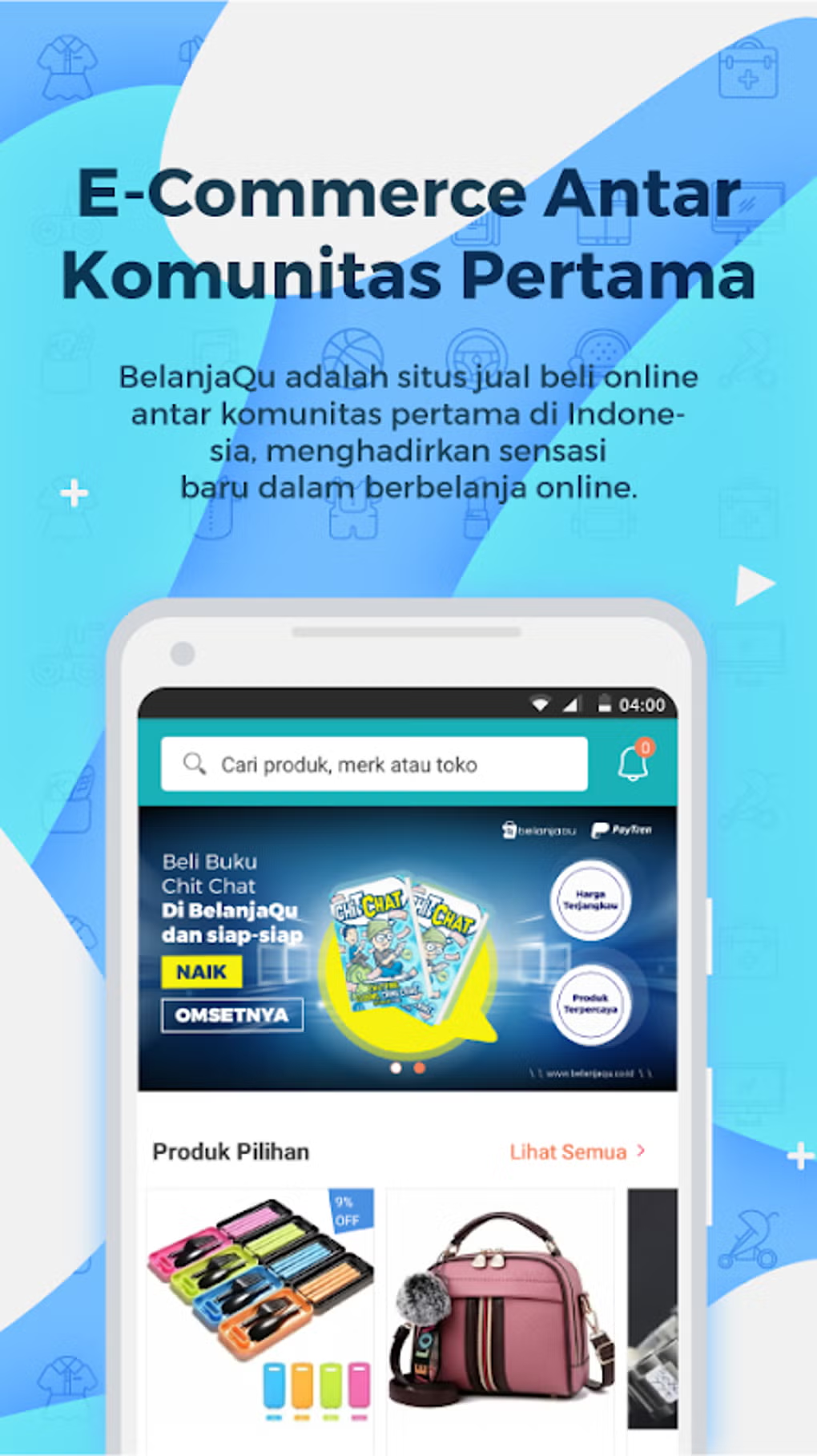
📱 Project Overview
BelanjaQu is the first online marketplace platform in Indonesia designed for community-based buying and selling, presenting a new sensation in online shopping.
Platform: Android NativeRole: Android Developer
Timeline: 2017 - 2019
Status: 🔴 Nonaktif
🧰 Tools Used
- Android Studio: Main IDE for development
- Firebase: Analytics, Crashlytics
- Postman: API documentation and backend testing
- Zeplin: UI/UX design collaboration
- Trello: Project and sprint management
- Bitbucket: Git-based version control
💡 Technology Stack
- Language: Java
- Architecture: MVP (Model-View-Presenter)
- Networking: OKHttp, Retrofit
- Utilities: QRCode Scanner/Generator, Glide
🛠️ Responsibilities & Contributions
- Developed the Android app from scratch using Java, following MVP architecture to keep business logic modular and testable.
- Designed features to support input of child growth metrics (e.g., weight, height, nutrition status) and location tagging.
- Built robust networking layers using OKHttp and Retrofit for API integration.
- Closely collaborated with designers using Zeplin to ensure UI/UX consistency across devices.
- Conducted API testing and validation using Postman to ensure stable backend connectivity.
- Managed version control and collaborated on code via Bitbucket using Git workflows.
📈 Results & Impact
- Successfully launched on Google Play, reaching hundreds of thousands of users across Indonesia.
- Helped onboard hundreds of small vendors and home businesses into the digital marketplace.
- Reduced dependency on traditional platforms by fostering localized, trust-based digital commerce.
- Improved app performance and reduced crashes.
Come to Sumedang
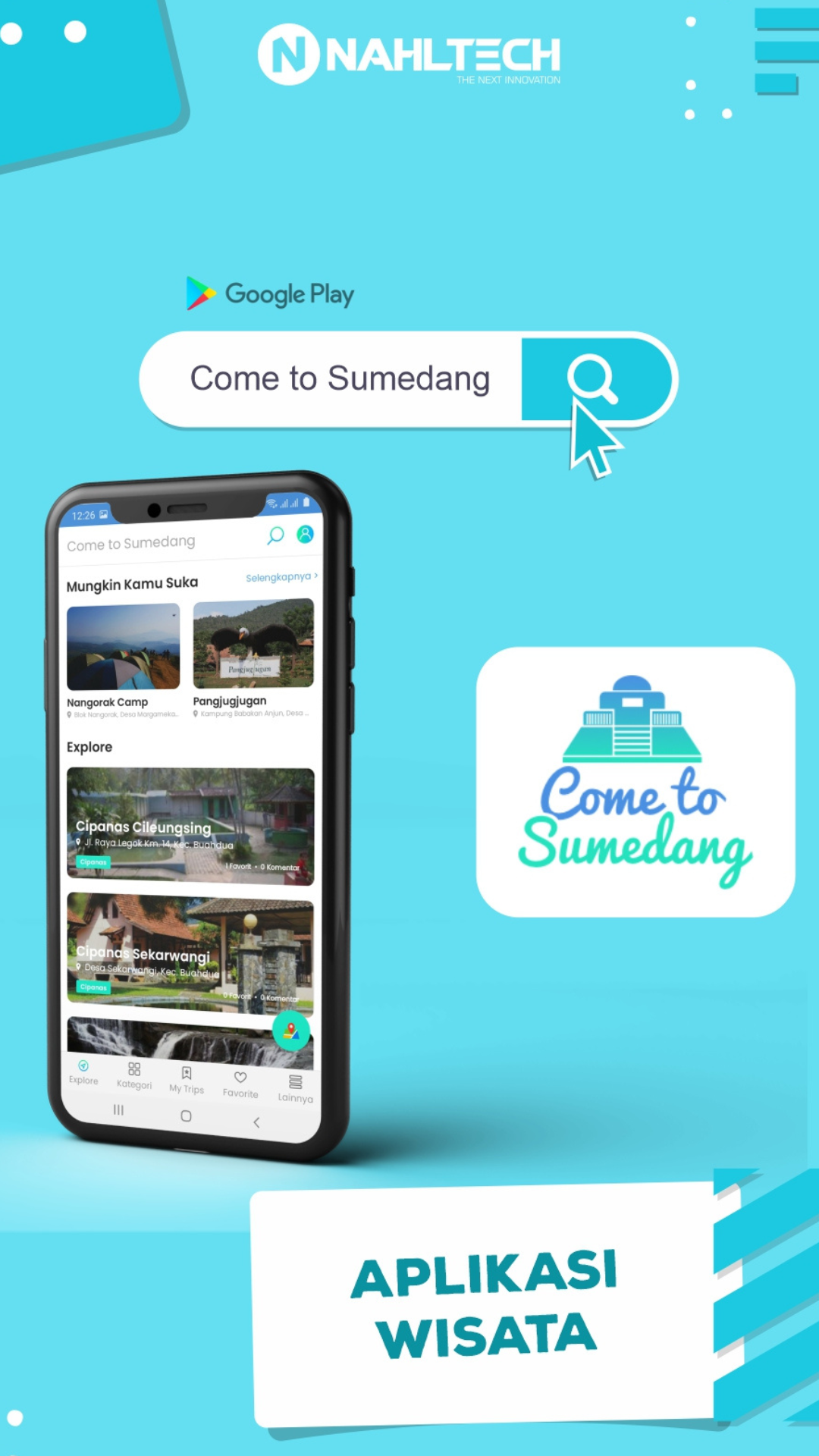
📱 Project Overview
Come to Sumedang is a mobile tourism platform designed to promote Sumedang Regency as a travel destination by offering comprehensive local travel information, destination highlights, cultural insights, culinary guides, and interactive maps. Built to assist travelers and local explorers, the app makes it easier to navigate the region and discover points of interest in a user-friendly and engaging way. This application also functions as a media sharing platform, allowing users and tourism authorities to share content, events, and travel updates in real time.
Platform: Android NativeRole: Android Developer
Timeline: 2019 - 2021
Status: 🟢 Production & Live on Google Play
🧰 Tools Used
- Android Studio: Main IDE for development
- Google Maps SDK: Interactive location and navigation features
- Postman: API testing and debugging
- Figma: UI/UX design collaboration
- GitLab: Git-based version control
💡 Technology Stack
- Language: Kotlin
- Architecture: MVVM (Model-View-ViewModel)
- Dependency Injection: Dagger
- Networking: OKHttp, Retrofit
- Mapping & Location: Google Maps SDK
🛠️ Responsibilities & Contributions
- Developed the Android app from scratch using Kotlin and applied MVVM architecture for scalability and maintainability.
- Integrated Google Maps for location-based features, enabling users to explore tourist destinations, routes, and nearby amenities.
- Built robust networking layers using OKHttp and Retrofit for API integration.
- Designed and built responsive, intuitive user interfaces based on Figma wireframes and mockups.
- Conducted thorough API testing using Postman to ensure stable communication between client and server.
- Managed version control and collaborated on code via GitLab.
📈 Results & Impact
- Successfully launched on Google Play as part of a local tourism initiative, increasing visibility of Sumedang’s attractions.
- Improved traveler experience with accurate, location-aware navigation and detailed destination info.
- Promoted local tourism digitally, supporting the growth of local businesses and cultural exposure.
- Improved app performance and reduced crashes.
KBR Prime
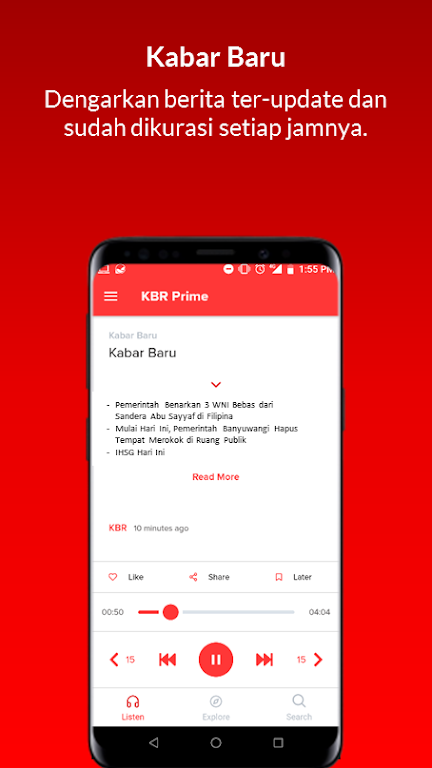
📱 Project Overview
KBR Prime is the official podcast platform of KBR (Kantor Berita Radio), an independent Indonesian media organization founded in the post-Reformasi era of 1999. Rooted in the spirit of public radio, KBR Prime curates and produces a wide range of high-quality podcasts across multiple genres. Podcasts are created independently by professional journalists or in collaboration with well-curated partners, aiming to empower audiences with reliable, diverse, and in-depth audio storytelling. This mobile app was built to deliver those podcasts in an accessible, user-friendly format, making KBR’s mission more available to digital listeners across the country.
Platform: Android NativeRole: Android Developer
Timeline: 2018 - 2019
Status: 🔴 Nonaktif
Website: https://kbrprime.id
🧰 Tools Used
- Android Studio: Main IDE for development
- Firebase: Authentication, Analytics, Crashlytics
- Facebook SDK: Social login
- Postman: API documentation and backend testing
- Zeplin: UI/UX design collaboration
- Trello: Project and sprint management
- GitLab: Git-based version control
💡 Technology Stack
- Language: Java
- Architecture: MVP (Model-View-Presenter)
- Networking: OKHttp, Retrofit
- Media Playback: ExoPlayer
🛠️ Responsibilities & Contributions
- Developed the Android app from scratch using Java, following MVP architecture to keep business logic modular and testable.
- Developed key features such as podcast streaming, browsing by category, episode playback, search, and user bookmarks.
- Integrated ExoPlayer to provide a seamless and stable podcast listening experience with support for background playback and buffering.
- Integrated Google and Facebook for social login.
- Built robust networking layers using OKHttp and Retrofit for API integration.
- Closely collaborated with designers using Zeplin to ensure UI/UX consistency across devices.
- Conducted API testing and validation using Postman to ensure stable backend connectivity.
- Managed version control and collaborated on code via GitLab.
📈 Results & Impact
- Successfully launched on Google Play and adopted as the official mobile platform for KBR’s growing podcast audience.
- Helped extend the reach of independent, journalistic audio content across mobile listeners in Indonesia.
- Reinforced KBR’s public mission by making credible, diverse, and empowering content more accessible to digital audiences.
- Contributed to the digital transformation of one of Indonesia’s most respected independent media platforms.
- Improved app performance and reduced crashes.
Toko Awadah
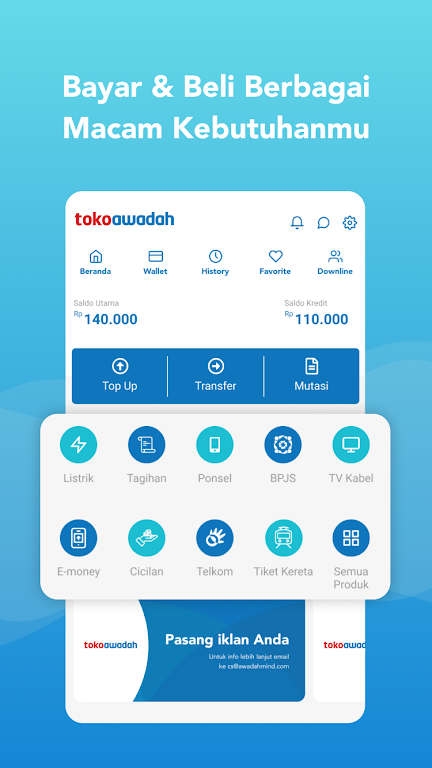
📱 Project Overview
TokoAwadah is a virtual store platform that enables users to perform various online transactions and payments seamlessly.
Platform: React Native (Android)Role: Android Developer
Timeline: 2020
Status: 🔴 Nonaktif
🧰 Tools Used
- Language: React Native
- Firebase: Authentication, Analytics, Crashlytics
- Facebook SDK: Social login
- Postman: API testing and debugging
- Figma: UI/UX design collaboration
- GitLab: Git-based version control
🛠️ Responsibilities & Contributions
- Developed the mobile app using React Native to ensure a smooth experience across Android devices for scalability and maintainability.
- Closely collaborated with designers using Figma to ensure UI/UX consistency across devices.
- Conducted API testing and validation using Postman to ensure stable backend connectivity.
- Managed version control and collaborated on code via GitLab.
📈 Results & Impact
- Improved app performance and reduced crashes.
eGrower Koperasi
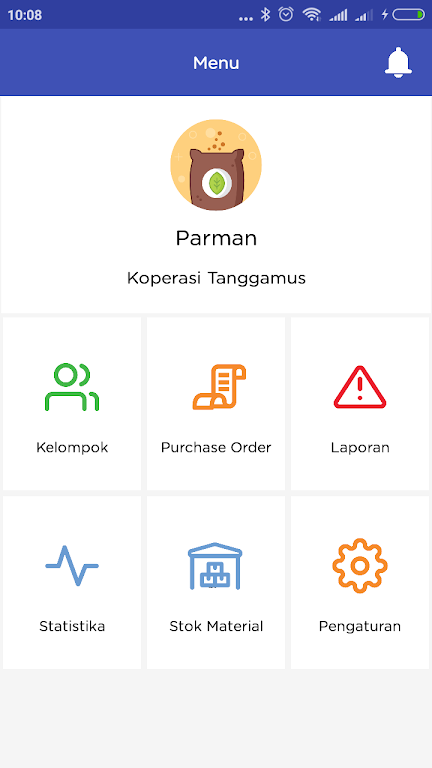
📱 Project Overview
eGrower Koperasi is a specialized agricultural mobile application developed exclusively for farming cooperatives. The app is designed to streamline cooperative operations and support farmers in managing their agricultural activities more effectively through digital tools.
Platform: Android NativeRole: Android Developer
Timeline: 2018 - 2019
Status: 🔴 Nonaktif
🧰 Tools Used
- Android Studio: Main IDE for development
- Firebase: Analytics, Crashlytics
- Postman: API documentation and backend testing
- Zeplin: UI/UX design collaboration
- Trello: Project and sprint management
- GitLab: Git-based version control
💡 Technology Stack
- Language: Java
- Architecture: MVP (Model-View-Presenter)
- Networking: OKHttp
🛠️ Responsibilities & Contributions
- Developed the Android app from scratch using Java, following MVP architecture to keep business logic modular and testable.
- Used OKHttp for efficient networking and seamless interaction with RESTful APIs.
- Closely collaborated with designers using Zeplin to ensure UI/UX consistency across devices.
- Conducted API testing and validation using Postman to ensure stable backend connectivity.
- Managed version control and collaborated on code via GitLab.
📈 Results & Impact
- Successfully deployed in several agricultural cooperatives and launched on Google Play, improving data accessibility and administrative efficiency.
- Supported digital transformation in rural agriculture by introducing a mobile-first solution.
- Empowered cooperative members to engage more actively and transparently in their organizations.
Bersama Peduli
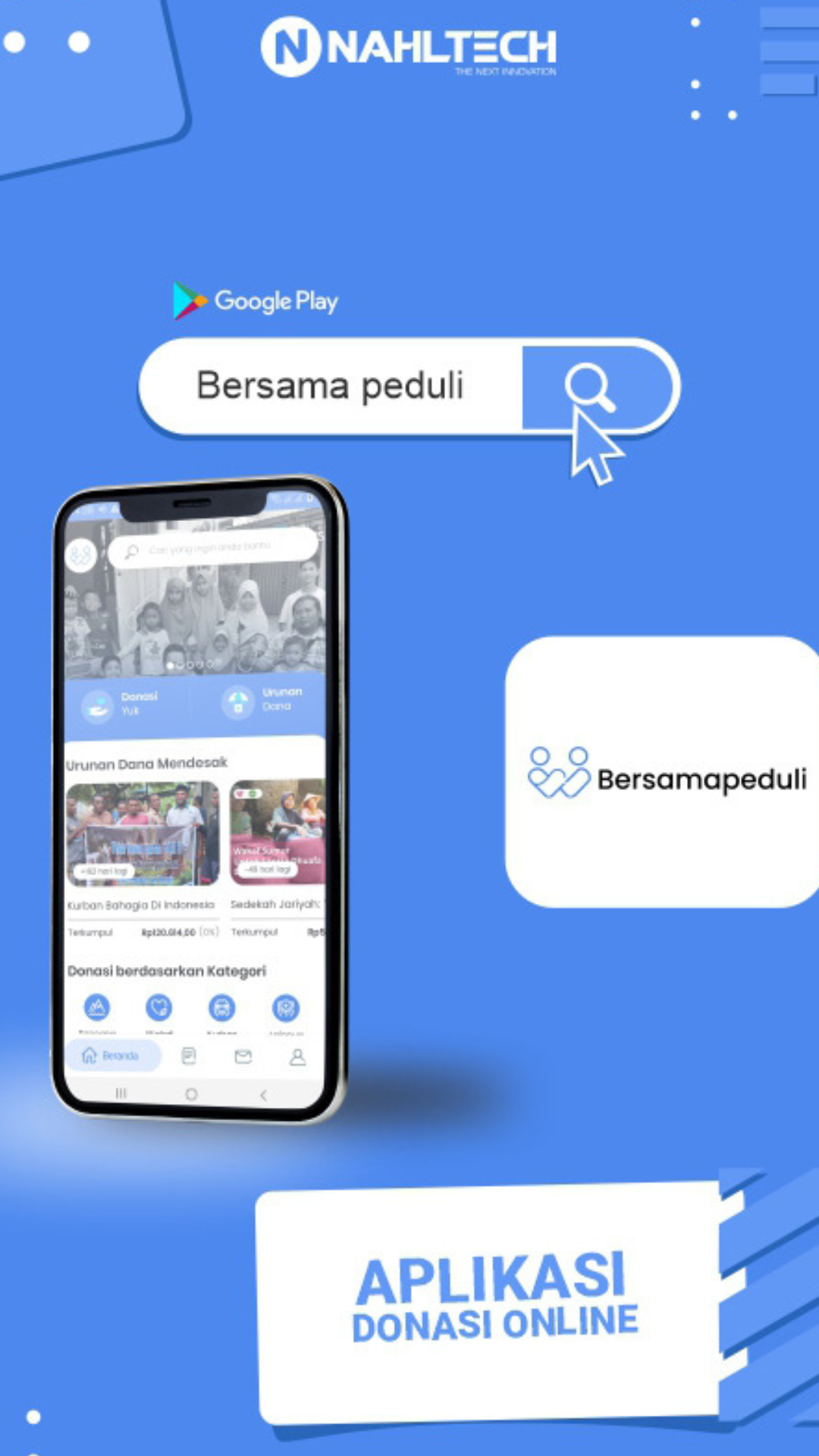
📱 Project Overview
Bersama Peduli is a comprehensive Android application developed to support online fundraising, sedekah, wakaf, and zakat in a secure and user-friendly manner. The platform empowers individuals and organizations to engage in charitable giving and religious obligations digitally, making it more accessible and transparent.
Platform: Android NativeRole: Android Developer
Timeline: 2021
Status: 🔴 Nonaktif
🧰 Tools Used
- Android Studio: Main IDE for development
- Postman: API testing and debugging
- Figma: UI/UX design collaboration
- GitLab: Git-based version control
💡 Technology Stack
- Language: Kotlin
- Architecture: MVVM (Model-View-ViewModel)
- Dependency Injection: Dagger
- Networking: OKHttp, Retrofit
🛠️ Responsibilities & Contributions
- Developed the Android app from scratch using Kotlin, following MVP architecture to keep business logic modular and testable.
- Used OKHttp for efficient networking and seamless interaction with RESTful APIs.
- Closely collaborated with designers using Zeplin to ensure UI/UX consistency across devices.
- Conducted API testing and validation using Postman to ensure stable backend connectivity.
- Managed version control and collaborated on code via GitLab.
📈 Results & Impact
- Enabled seamless digital donation for users across Indonesia, especially during campaigns like Ramadan or emergency response.
- Supported transparency and trust in fund distribution through clear tracking and reporting features.
- Contributed to the digital transformation of traditional charitable practices with a mobile-first approach.
Da'i Peduli
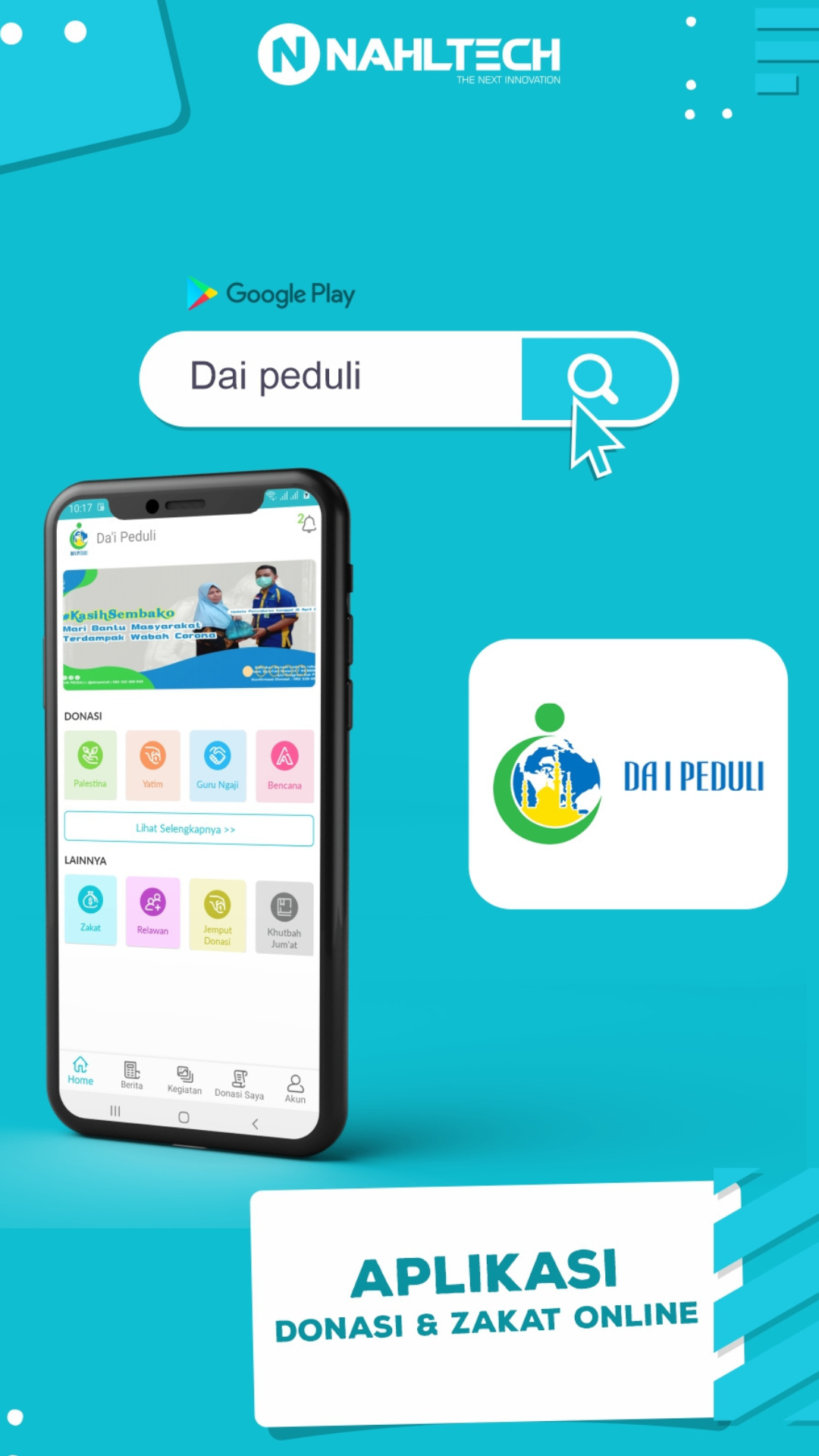
📱 Project Overview
Da'i Peduli is an Android-based platform designed to facilitate online donations, sedekah, wakaf, and zakat. The app was created to support digital transformation in charitable giving within the Muslim community, enabling users to contribute to verified campaigns and religious obligations with transparency and ease.
Platform: Android NativeRole: Android Developer
Timeline: 2020
Status: 🔴 Nonaktif
🧰 Tools Used
- Android Studio: Main IDE for development
- Postman: API testing and debugging
- Figma: UI/UX design collaboration
- GitLab: Git-based version control
💡 Technology Stack
- Language: Kotlin
- Architecture: MVVM (Model-View-ViewModel)
- Dependency Injection: Dagger
- Networking: OKHttp, Retrofit
🛠️ Responsibilities & Contributions
- Developed the Android app from scratch using Kotlin, following MVP architecture to keep business logic modular and testable.
- Used OKHttp for efficient networking and seamless interaction with RESTful APIs.
- Closely collaborated with designers using Zeplin to ensure UI/UX consistency across devices.
- Conducted API testing and validation using Postman to ensure stable backend connectivity.
- Managed version control and collaborated on code via GitLab.
📈 Results & Impact
- Provided a modern and accessible platform for digital Islamic philanthropy.
- Supported transparency and trust in fund distribution through clear tracking and reporting features.
- Contributed to the digital transformation of traditional charitable practices with a mobile-first approach.
